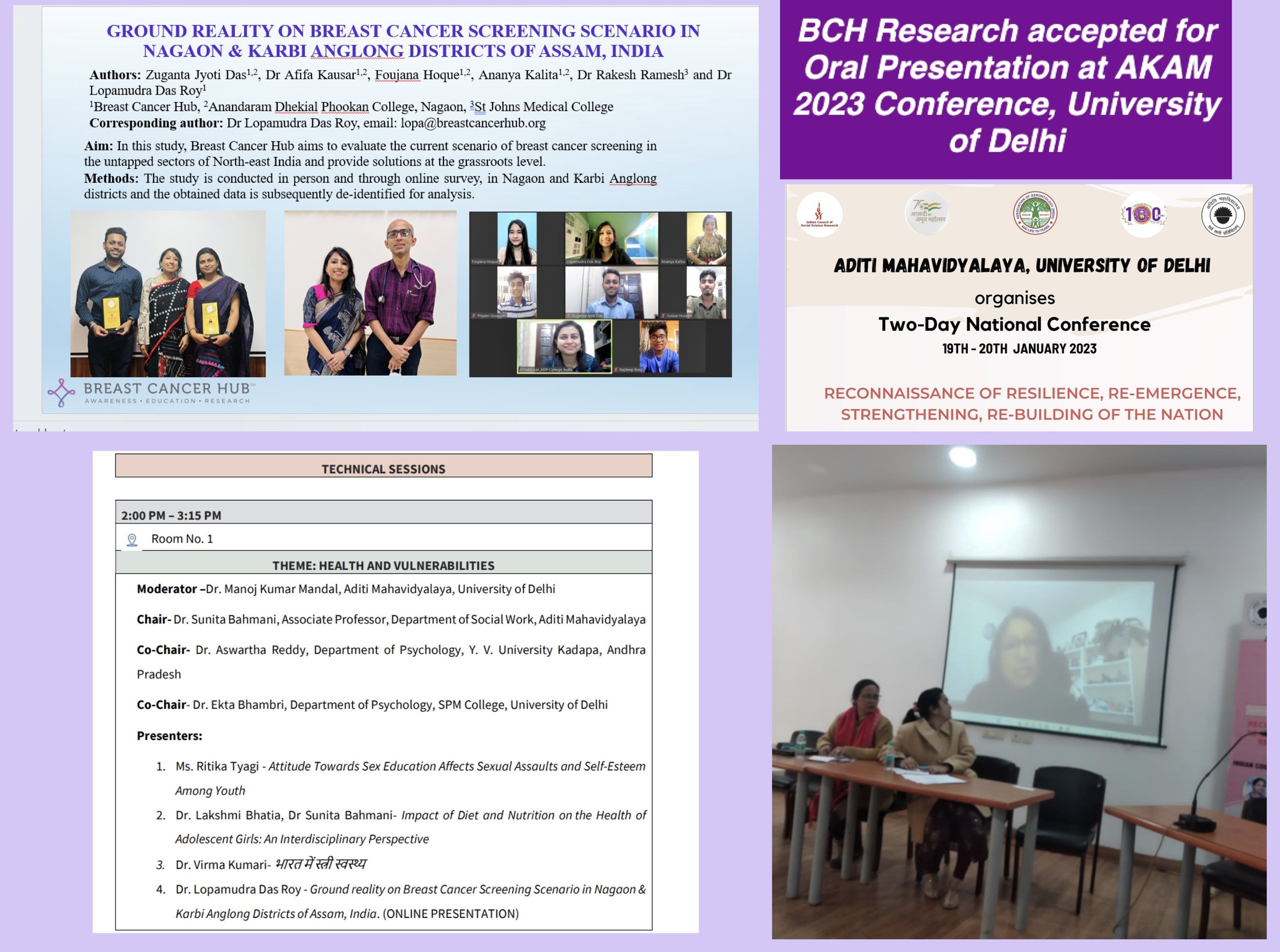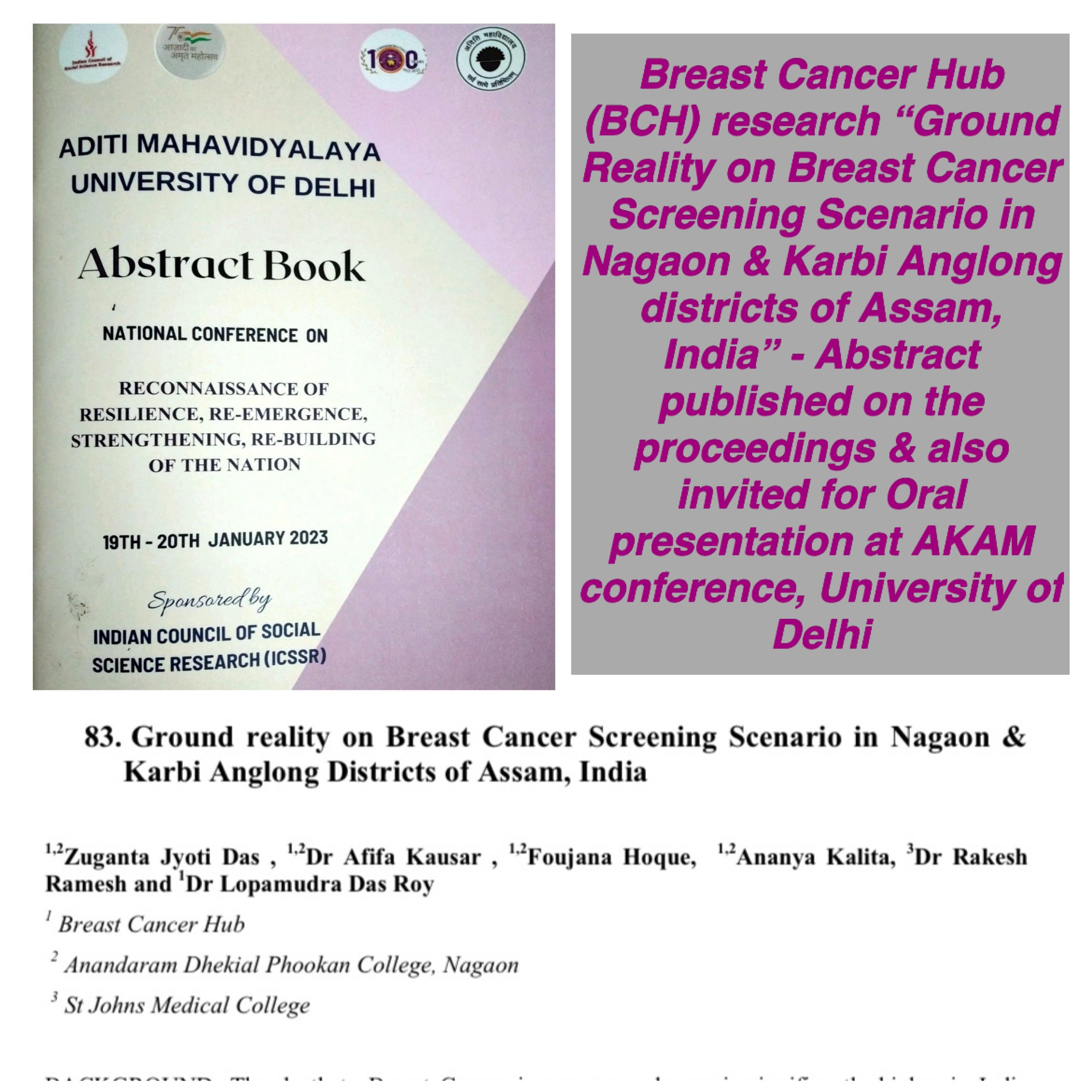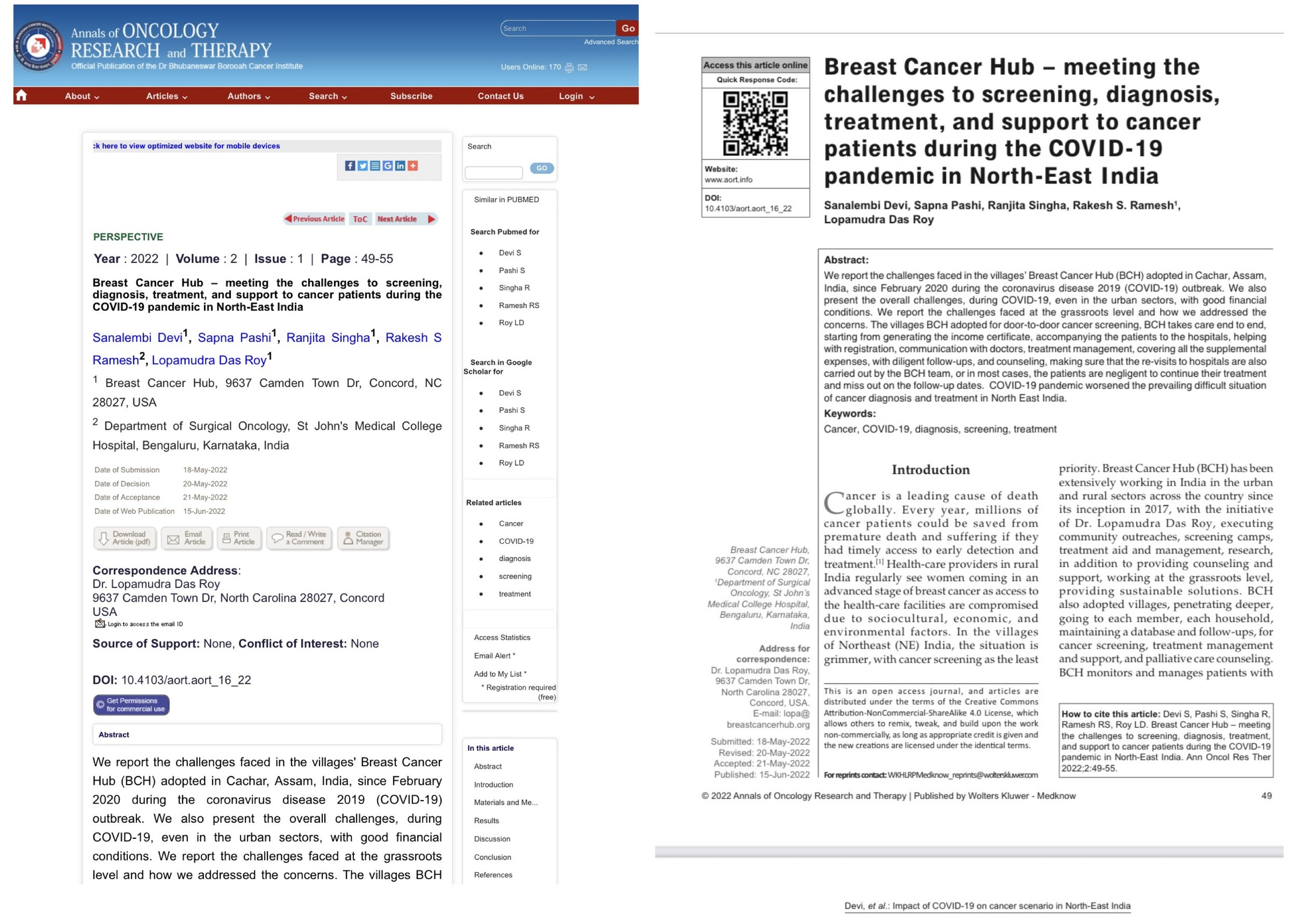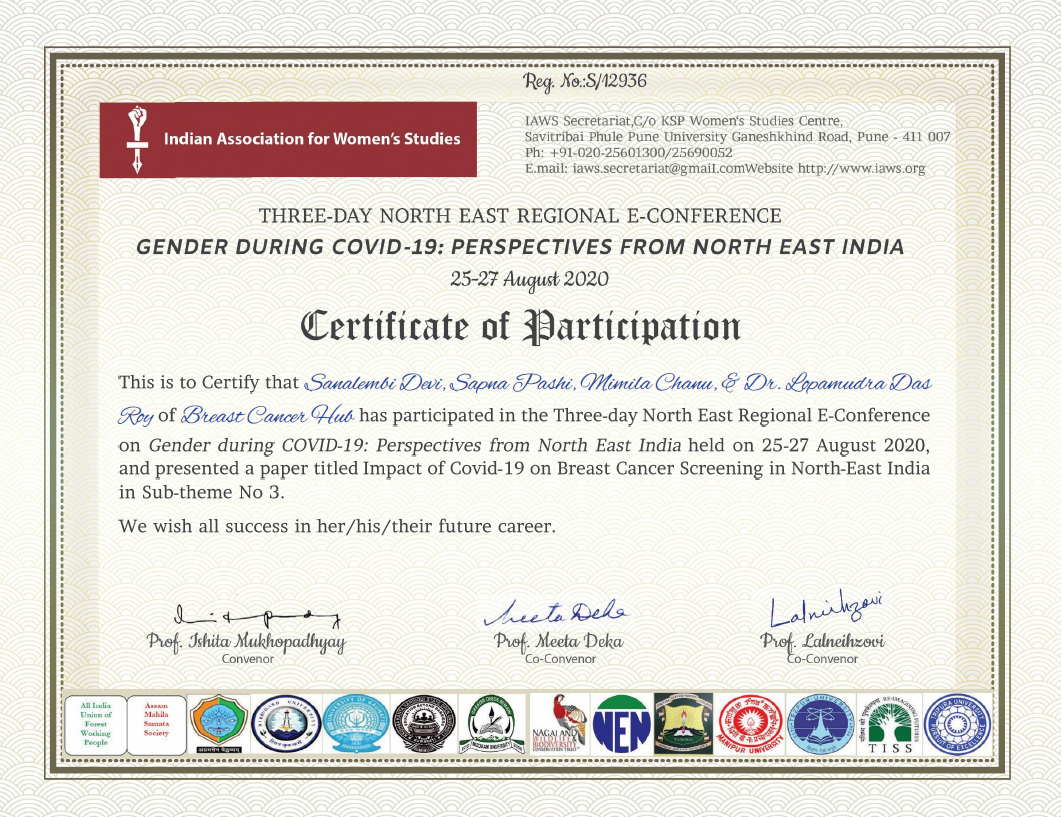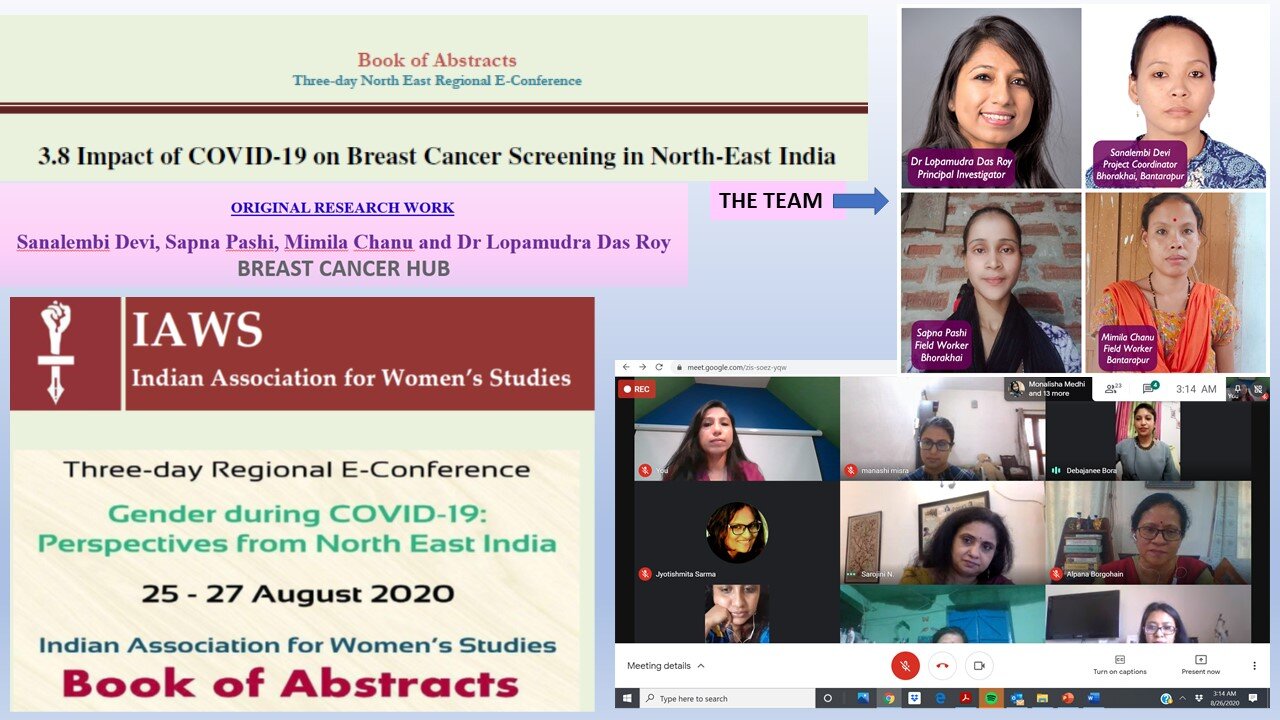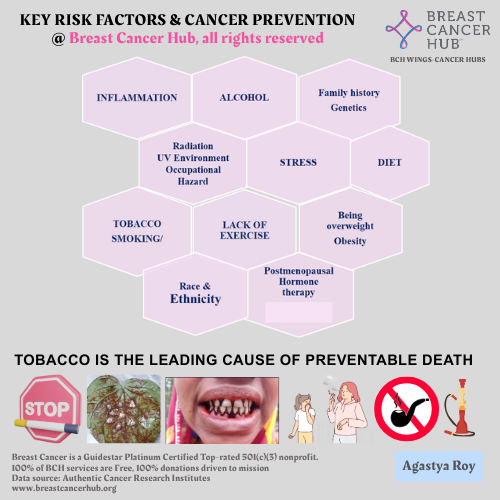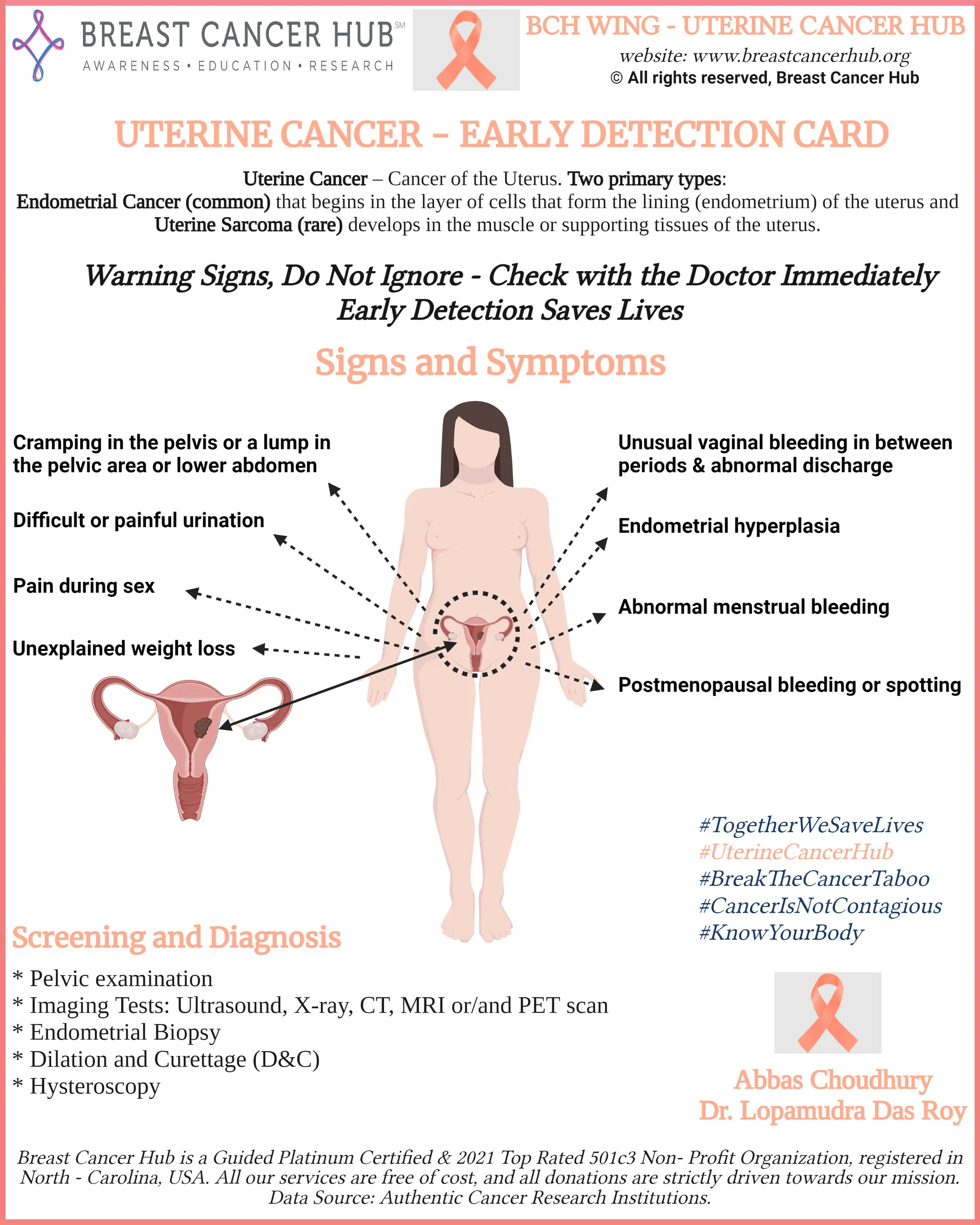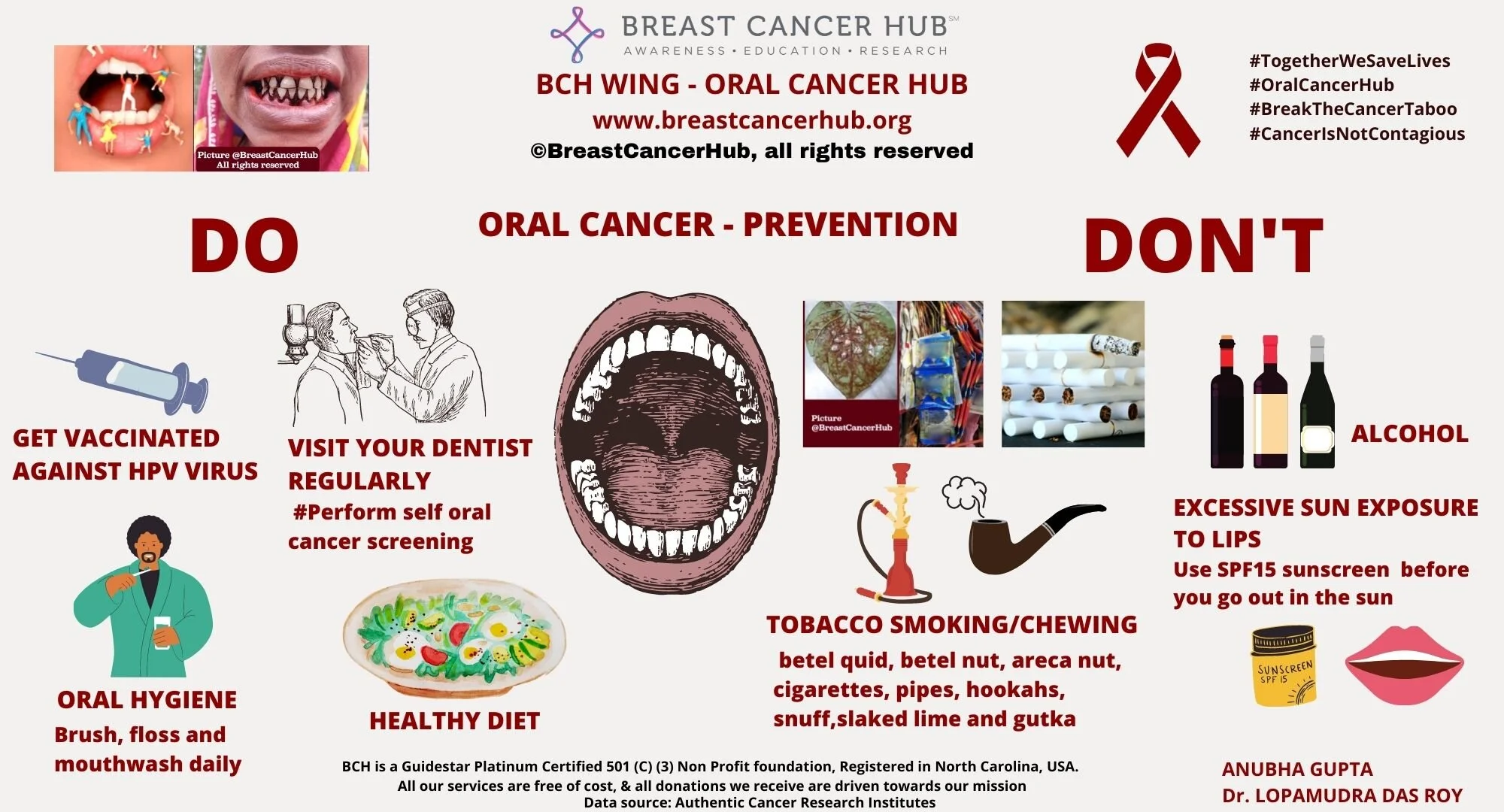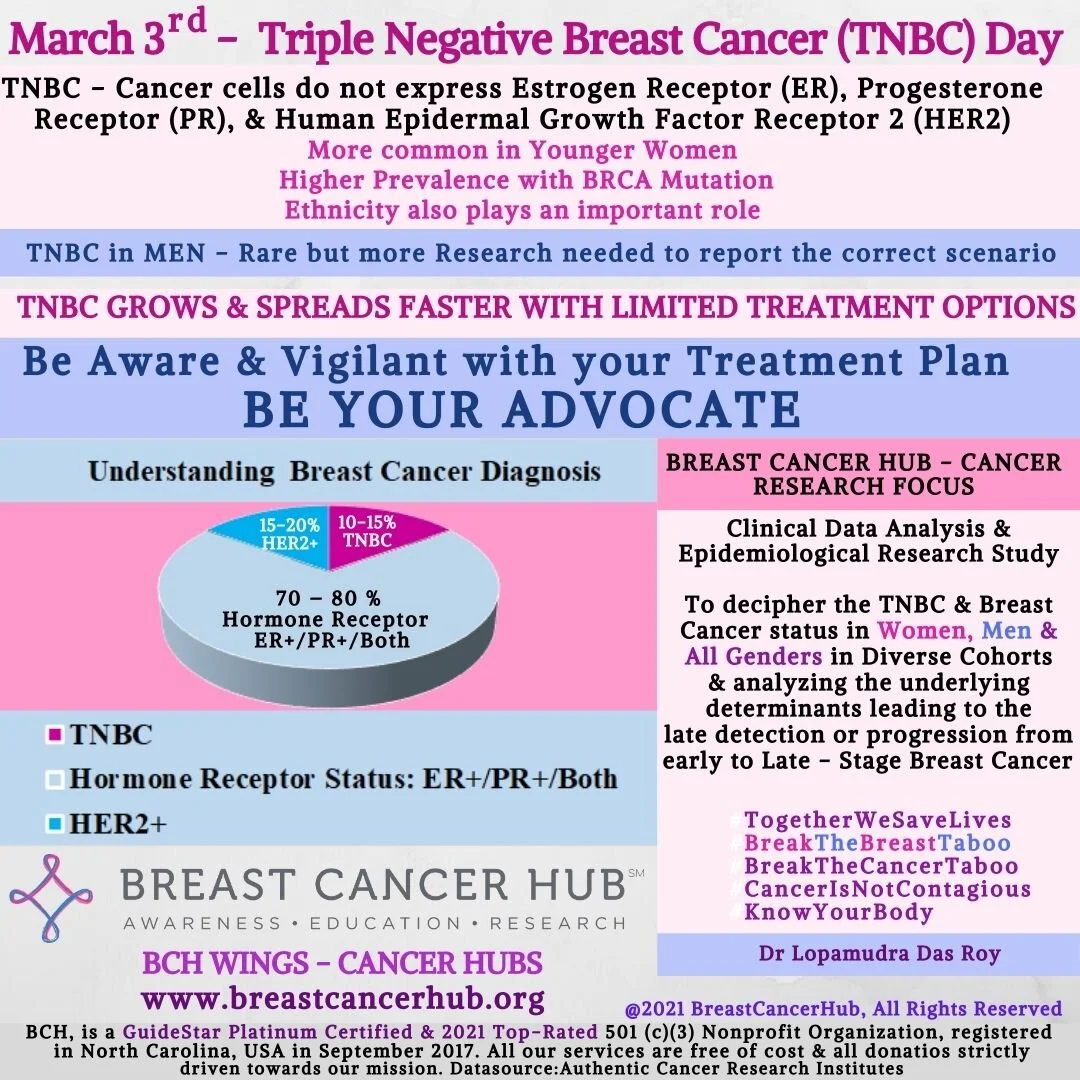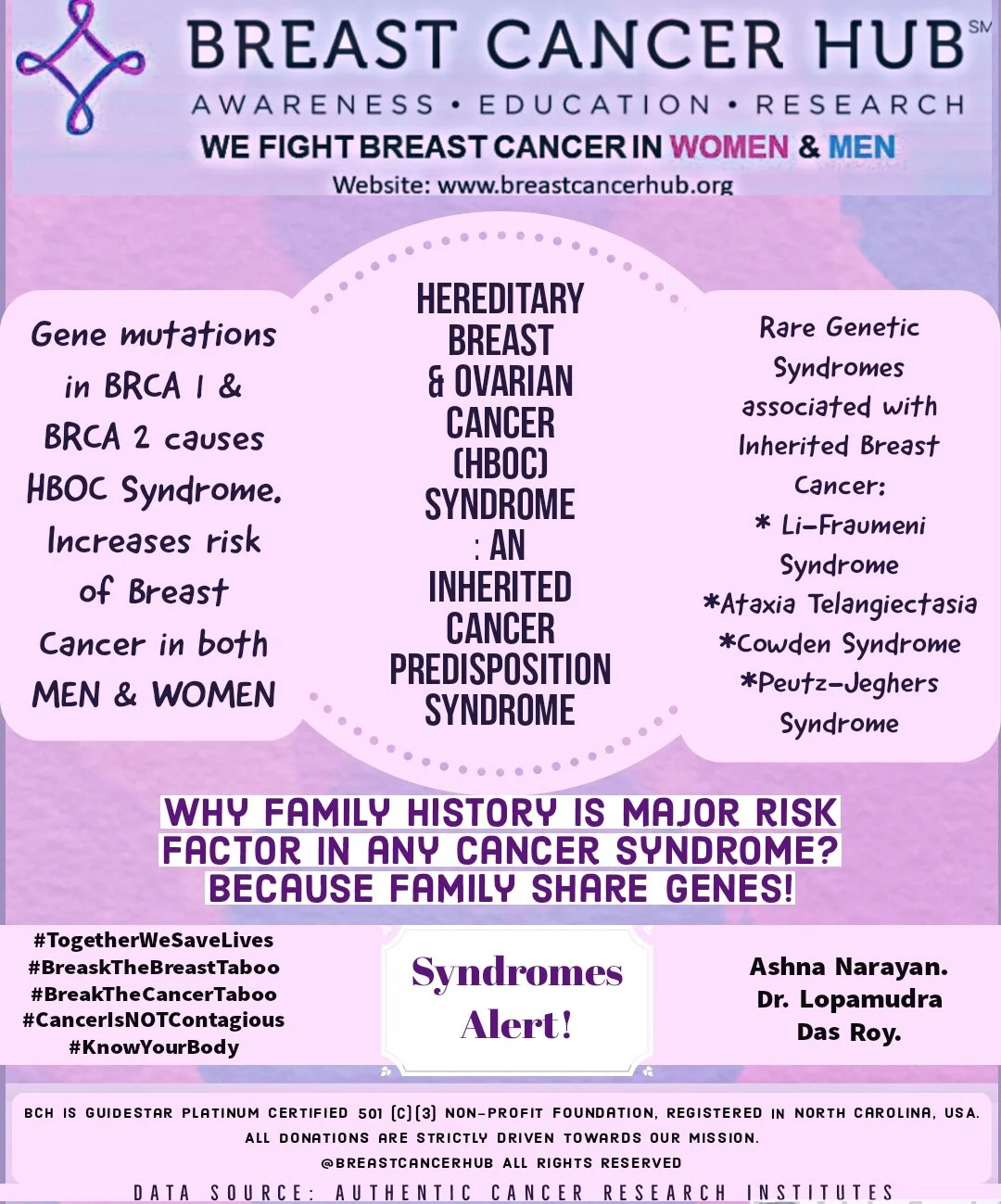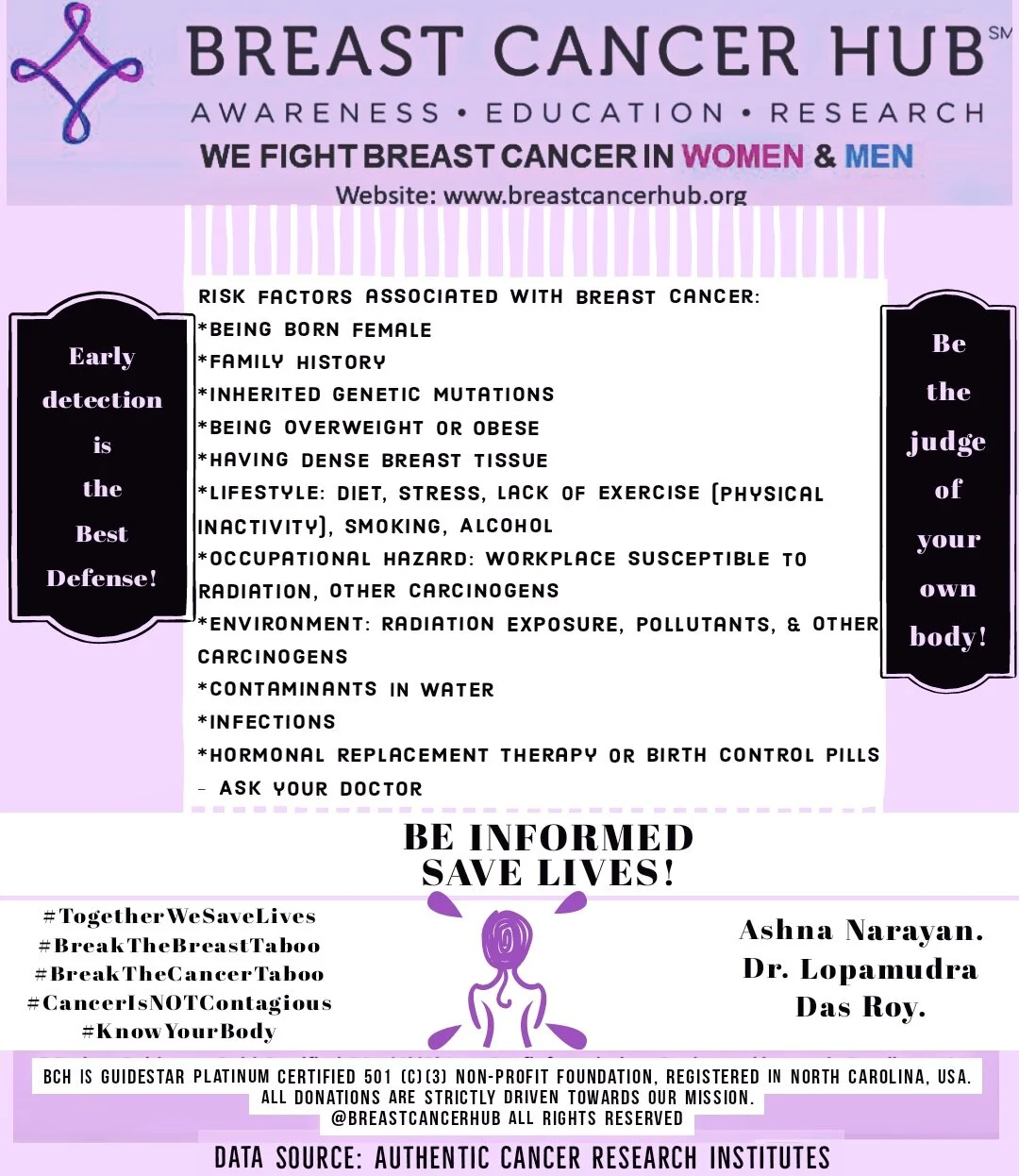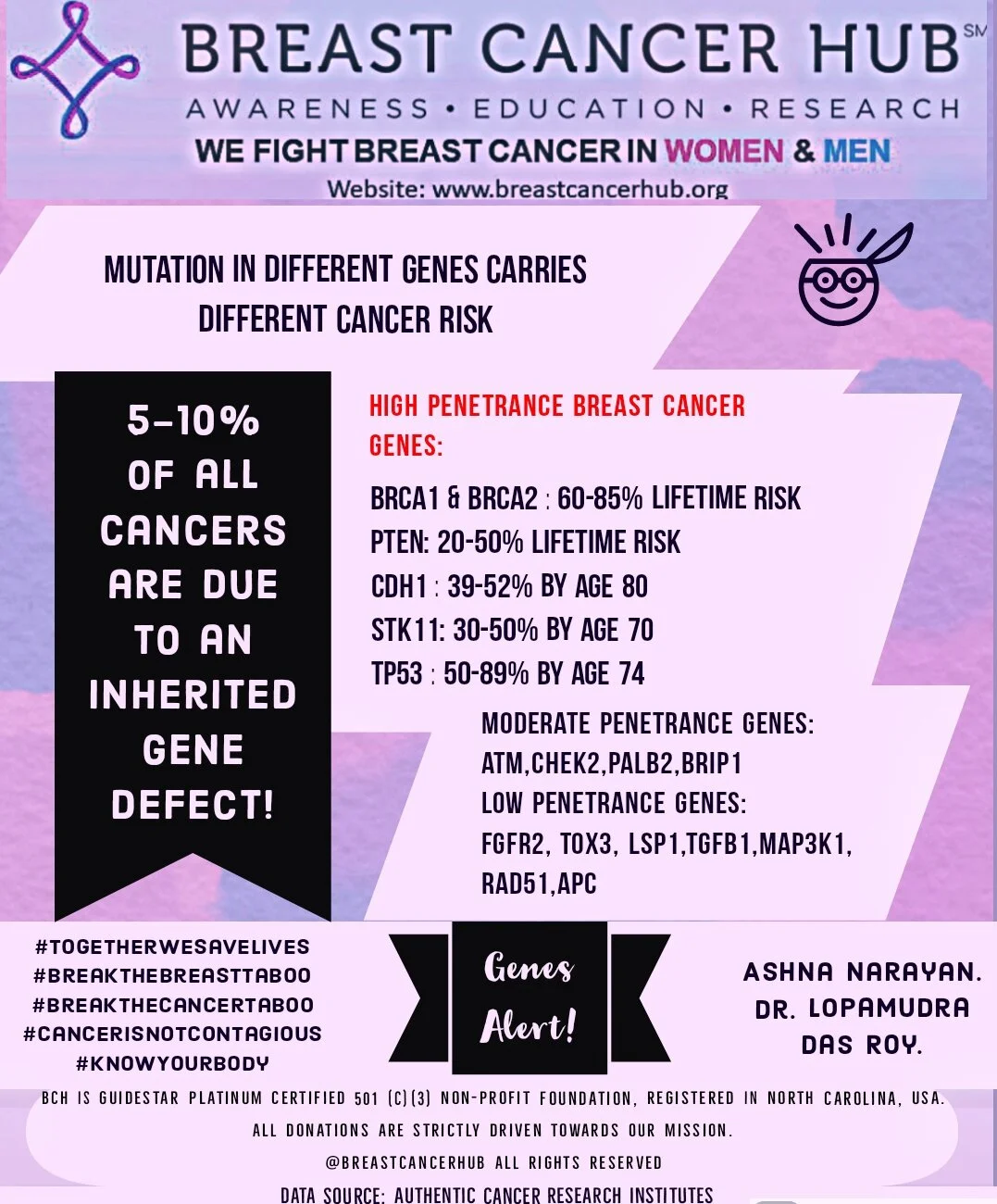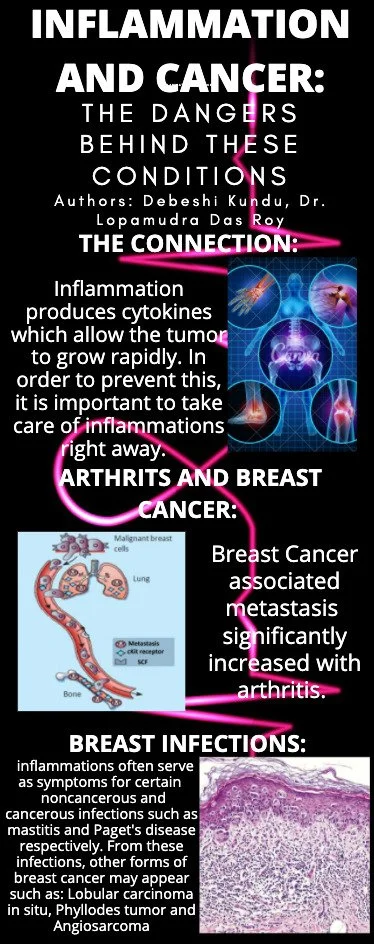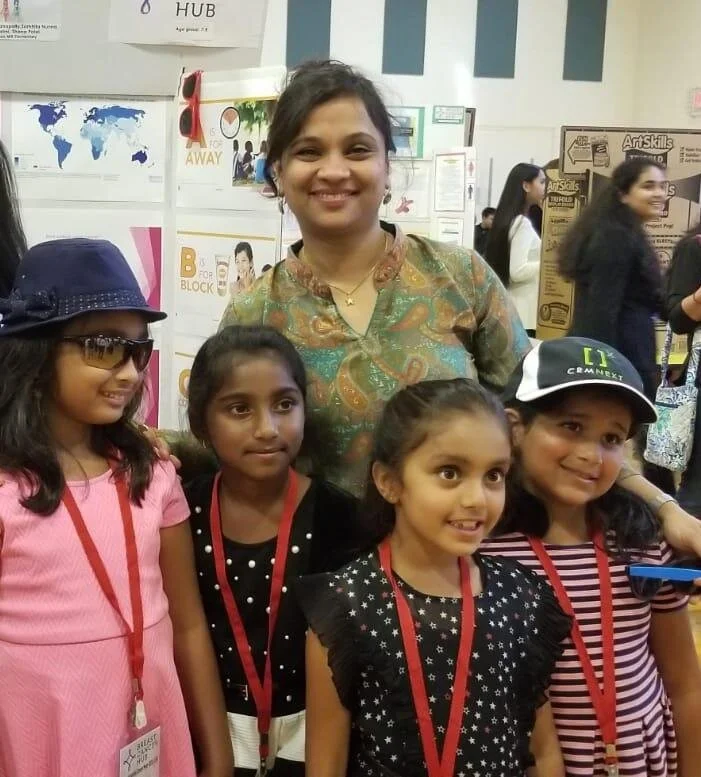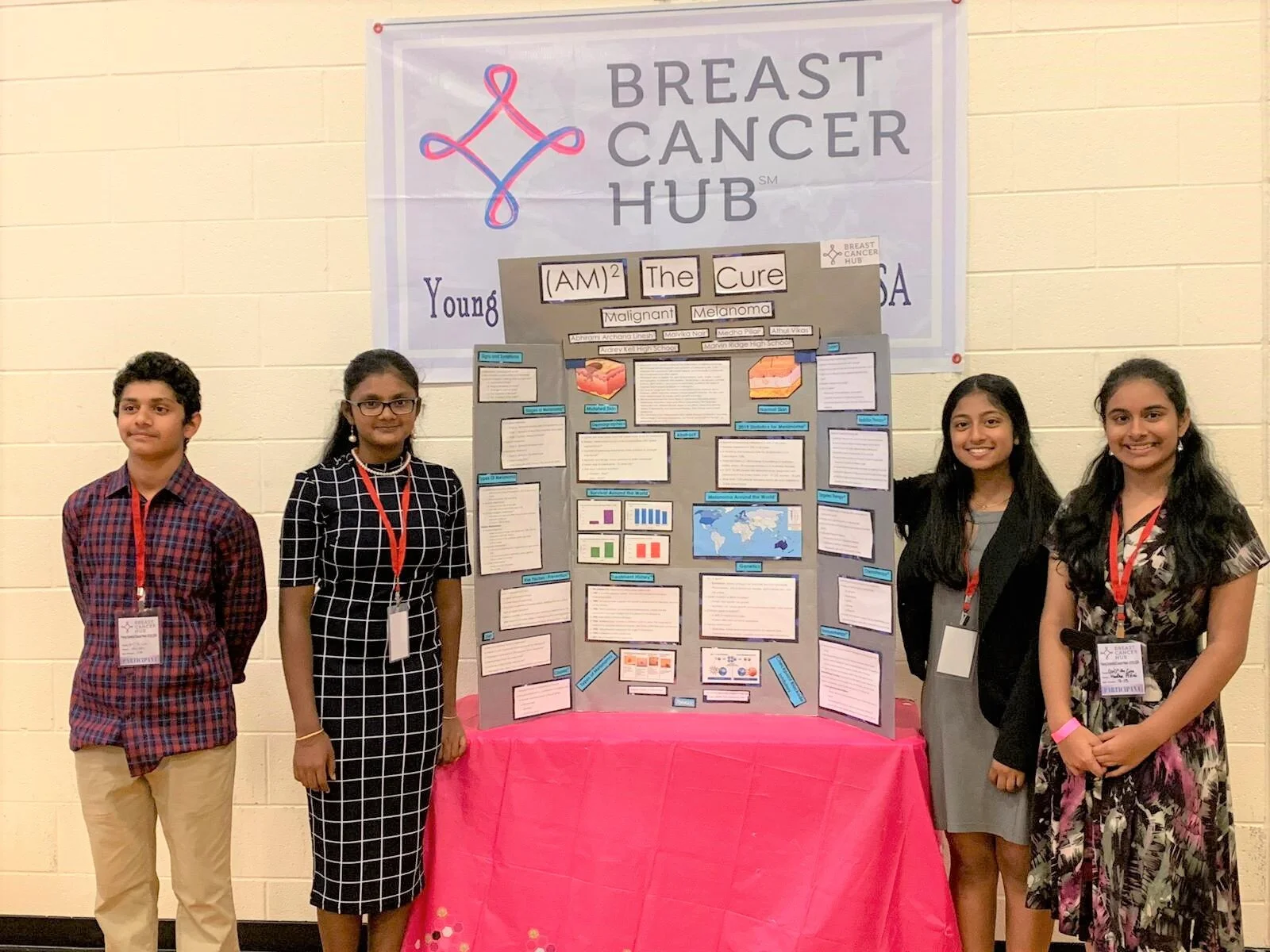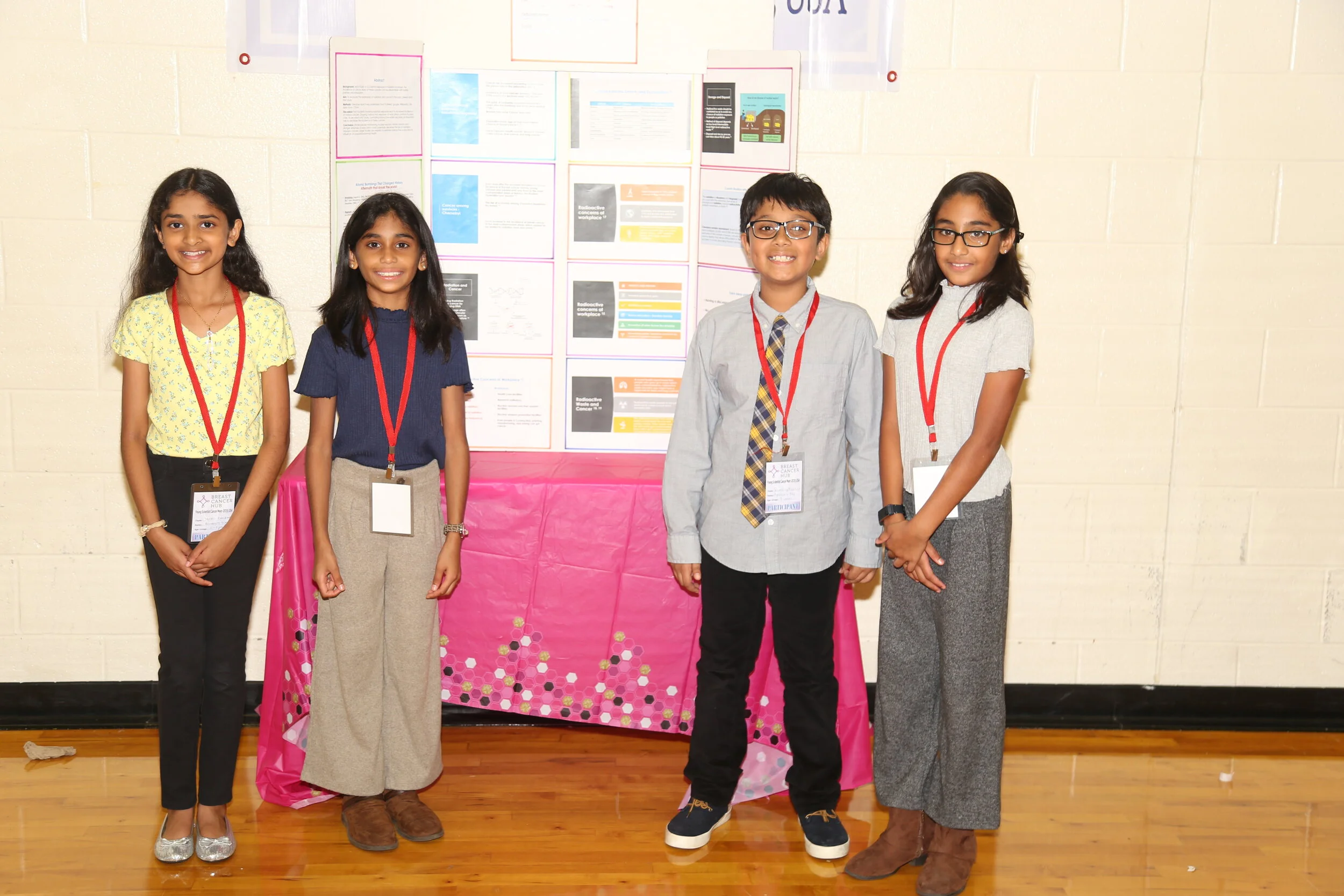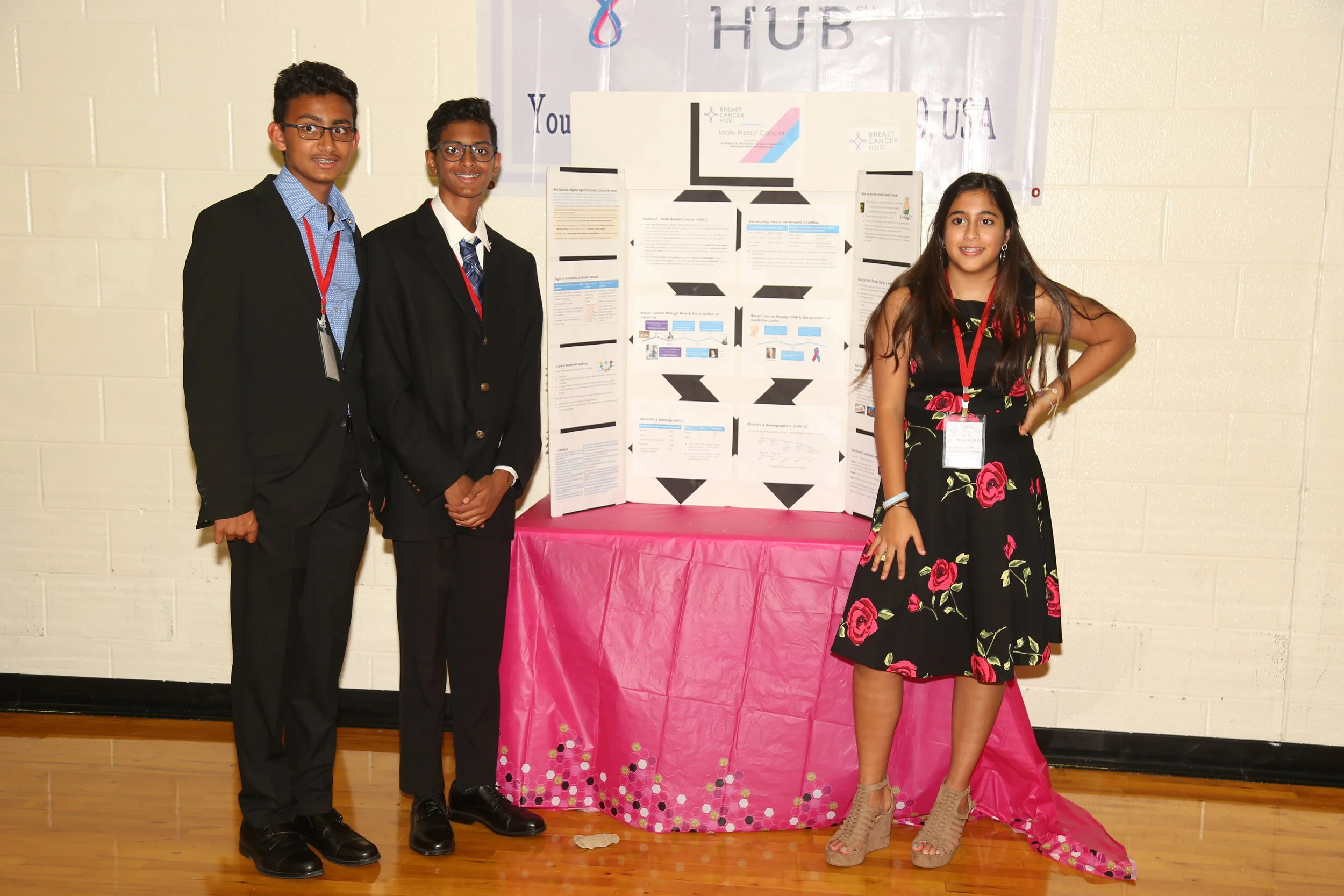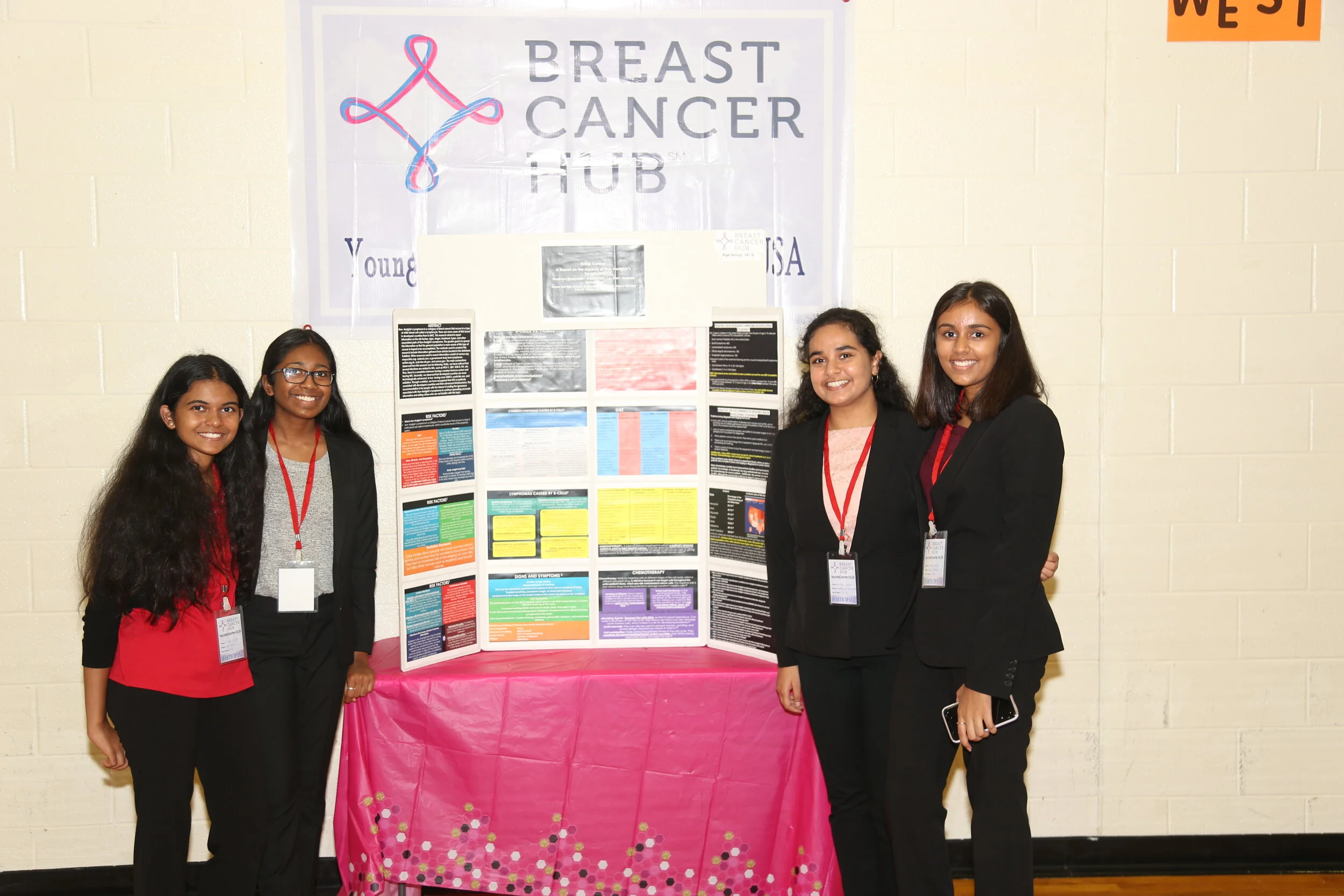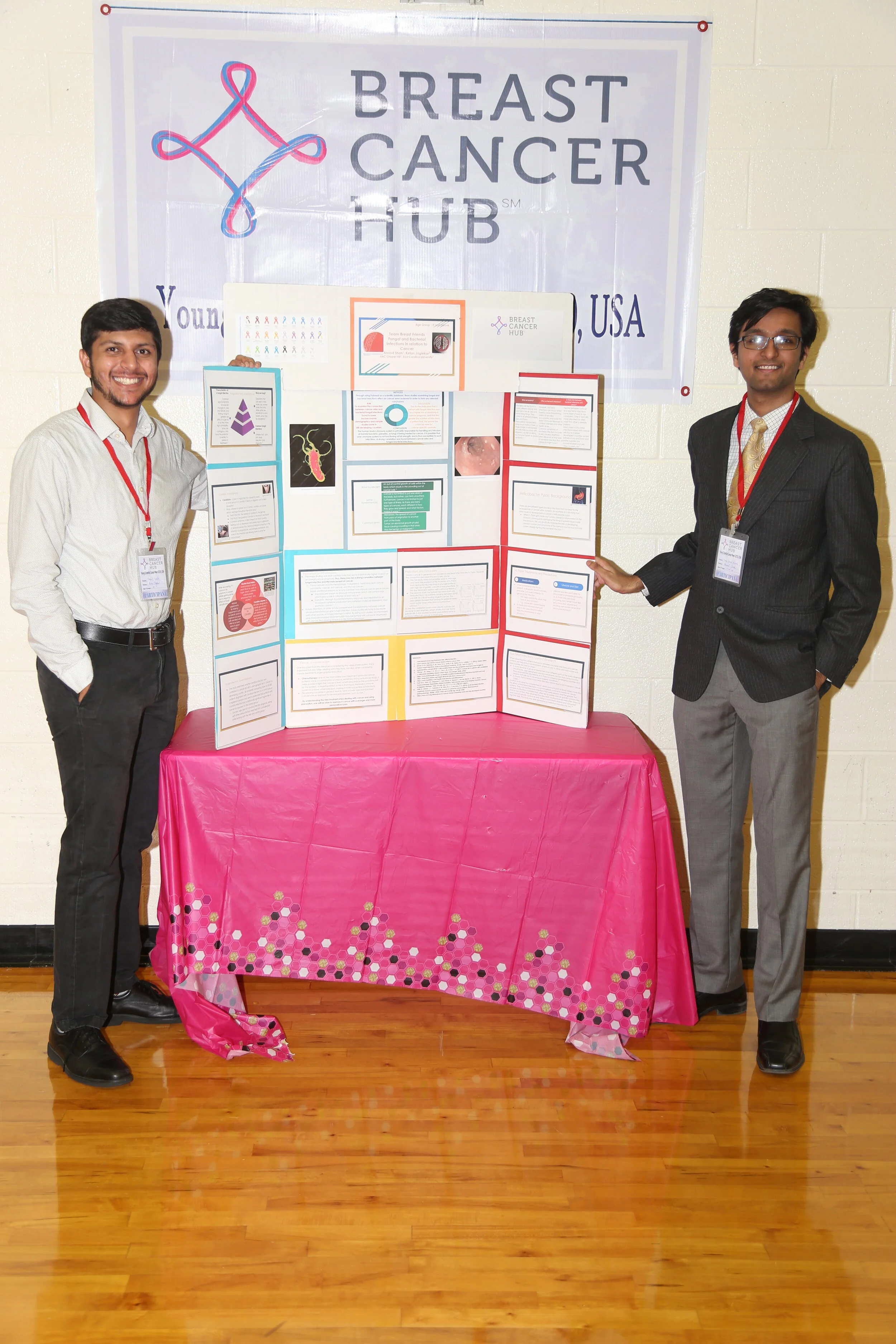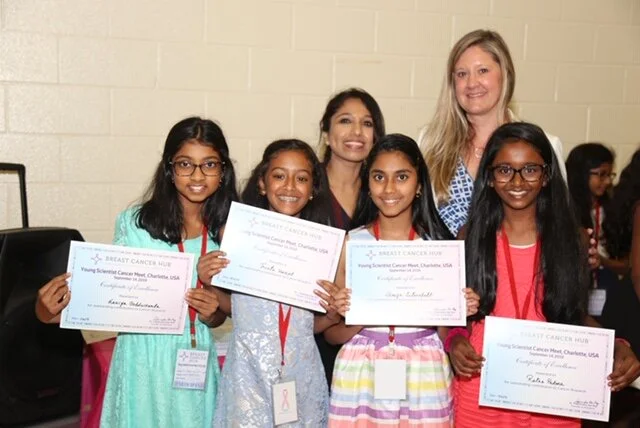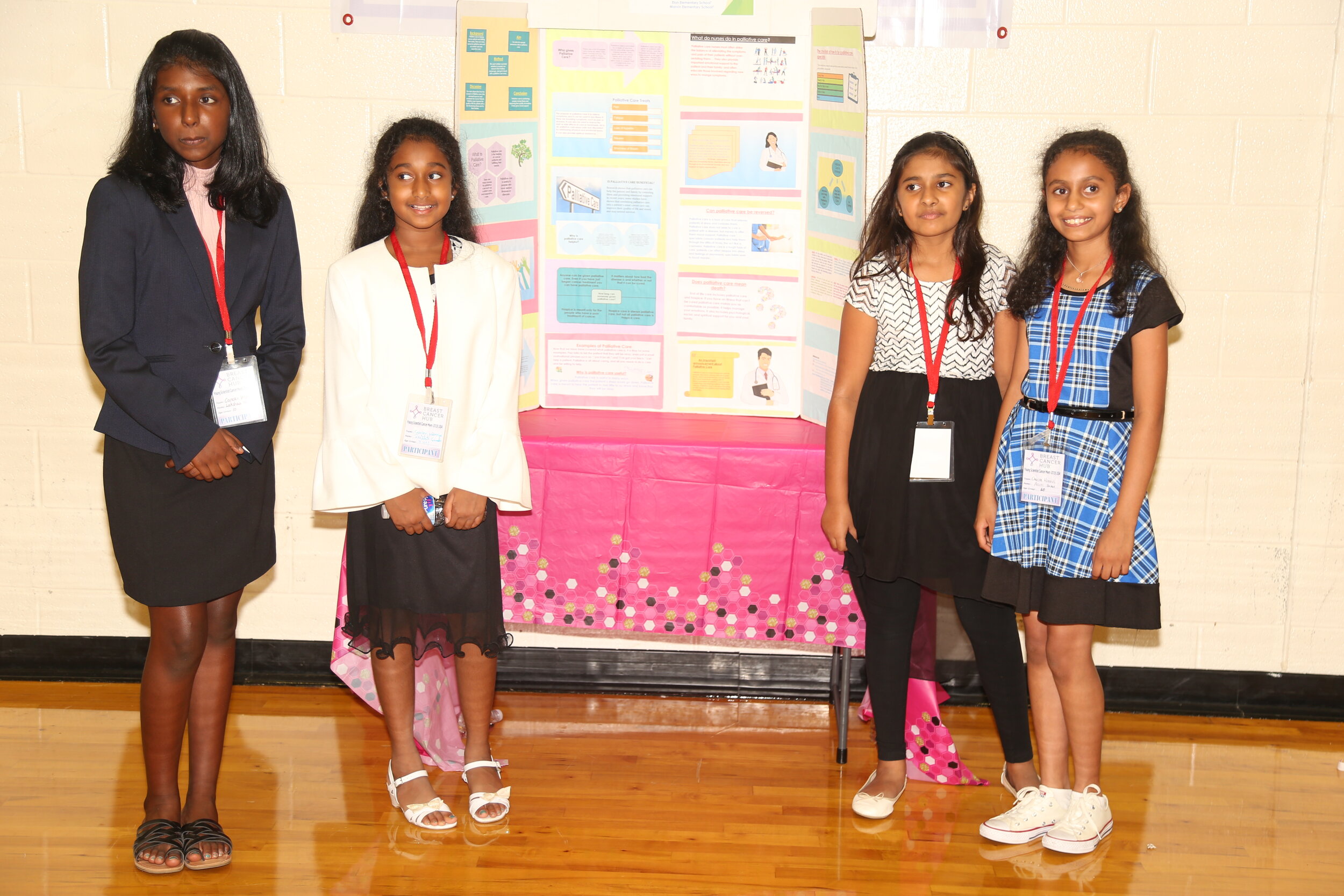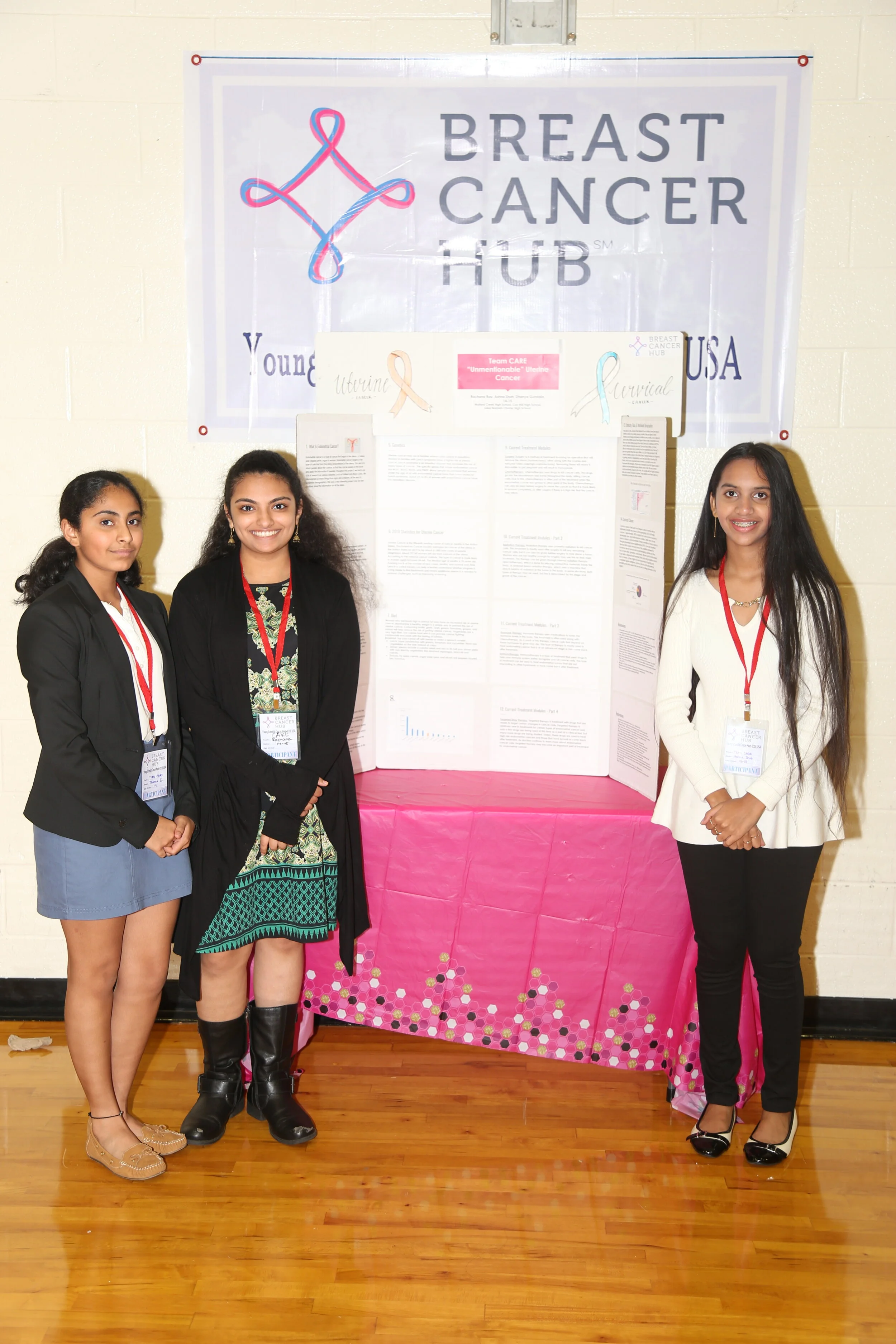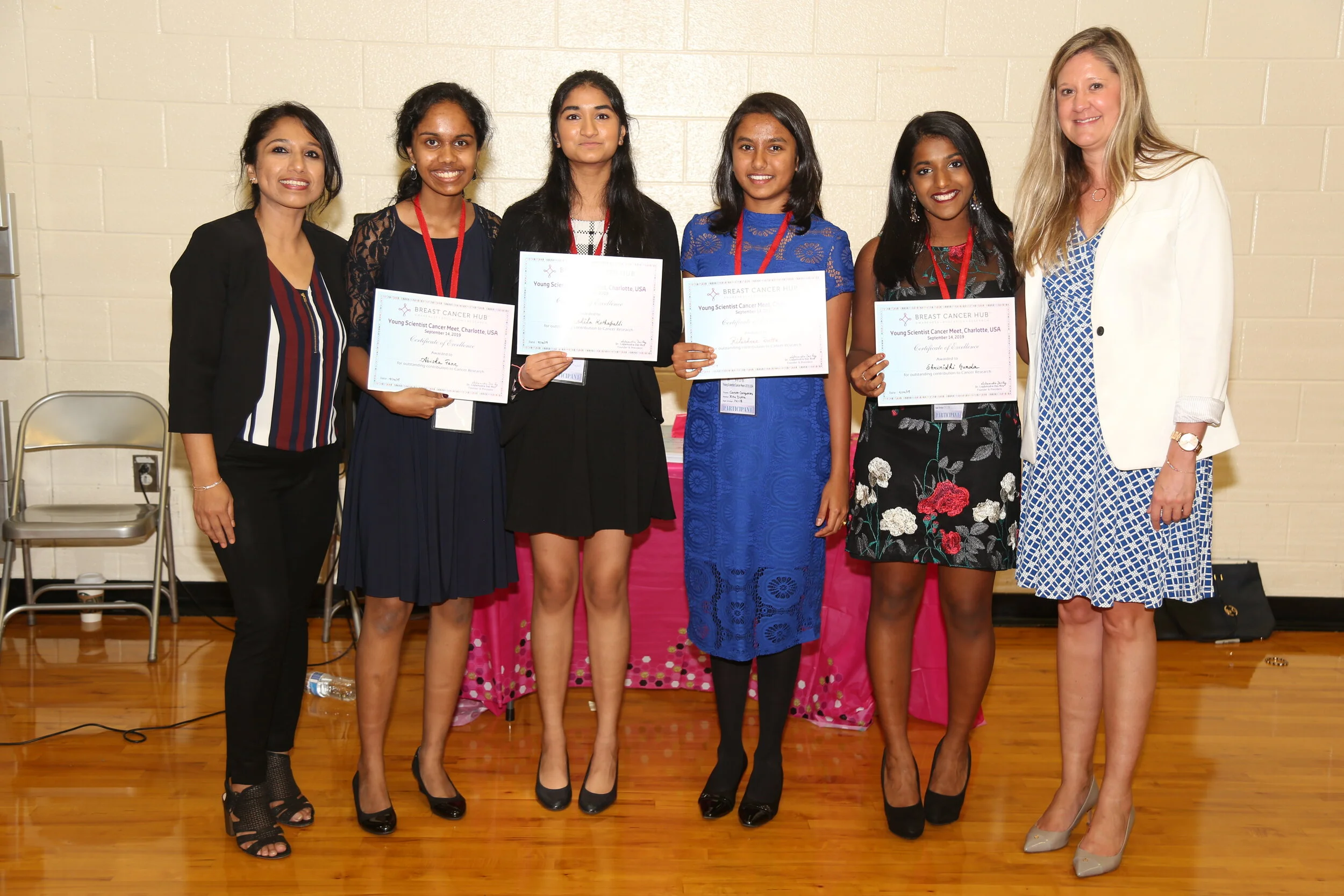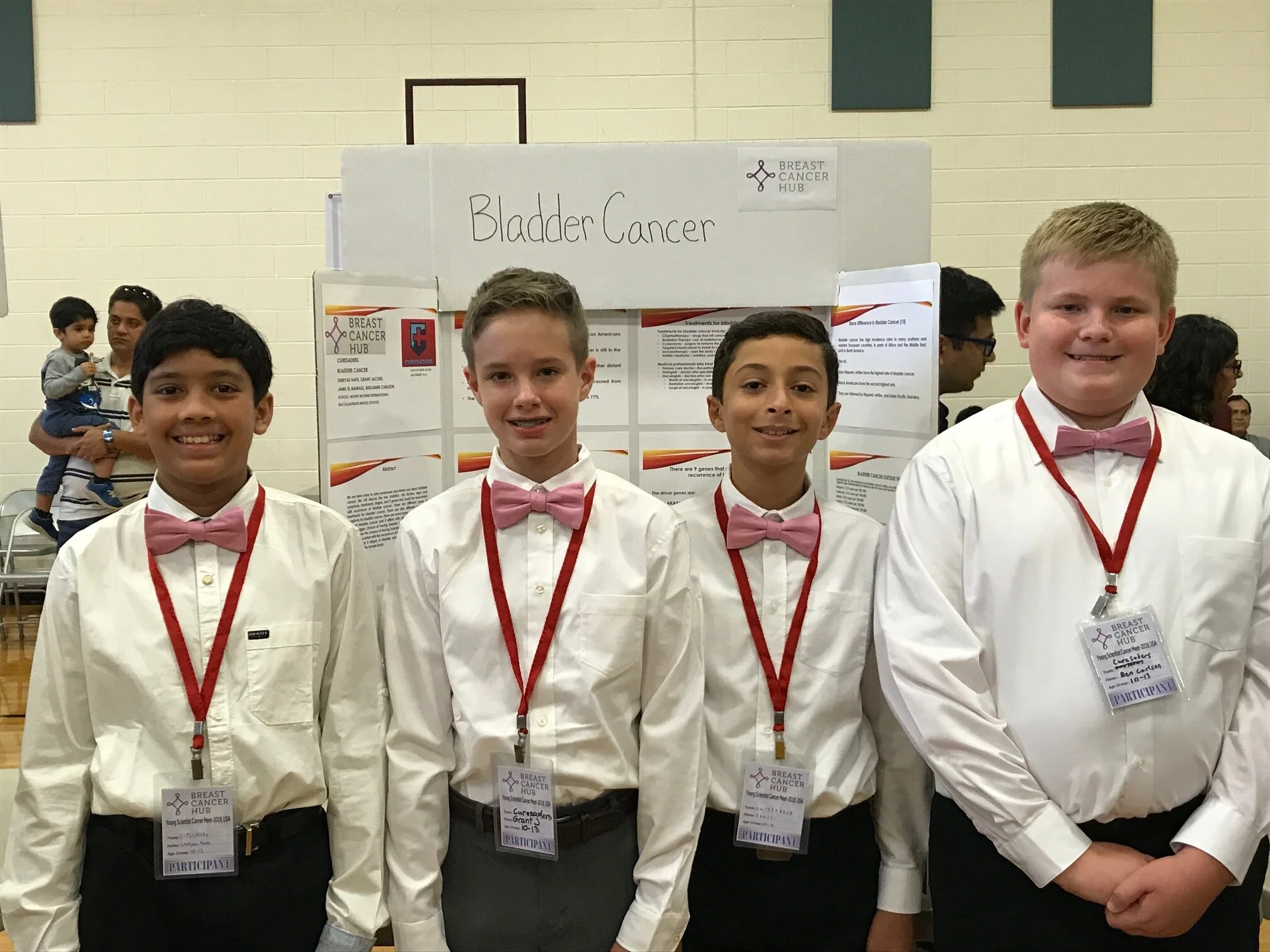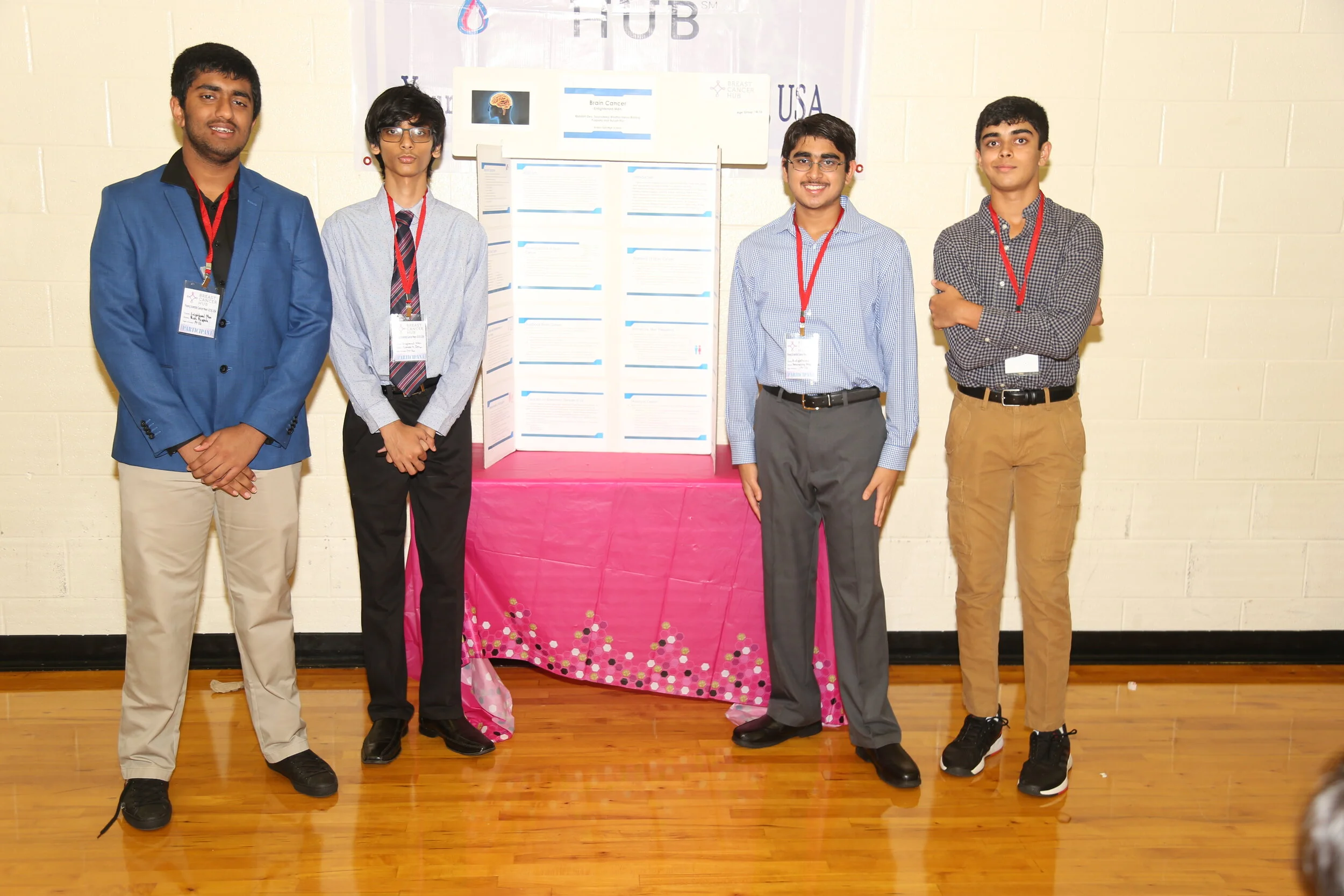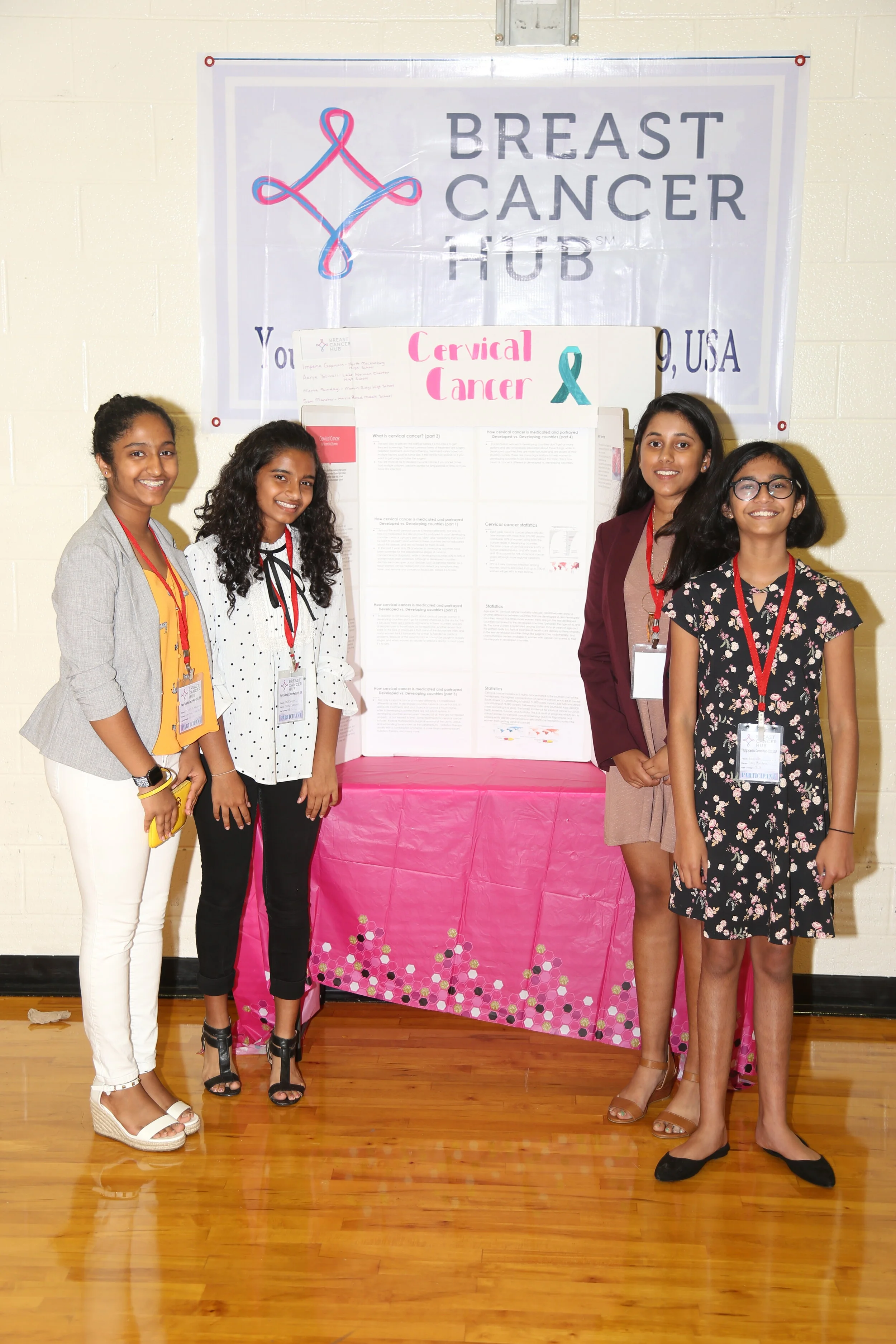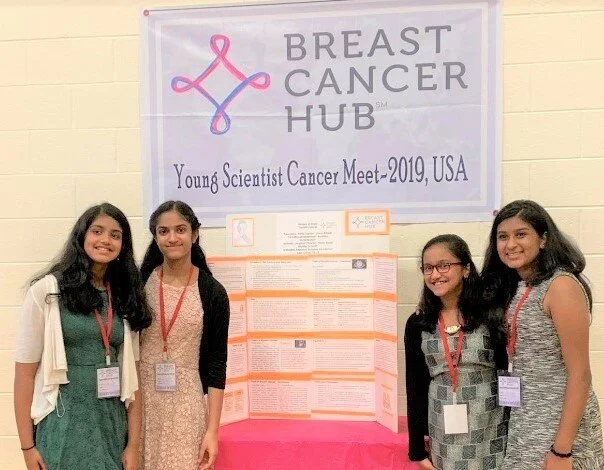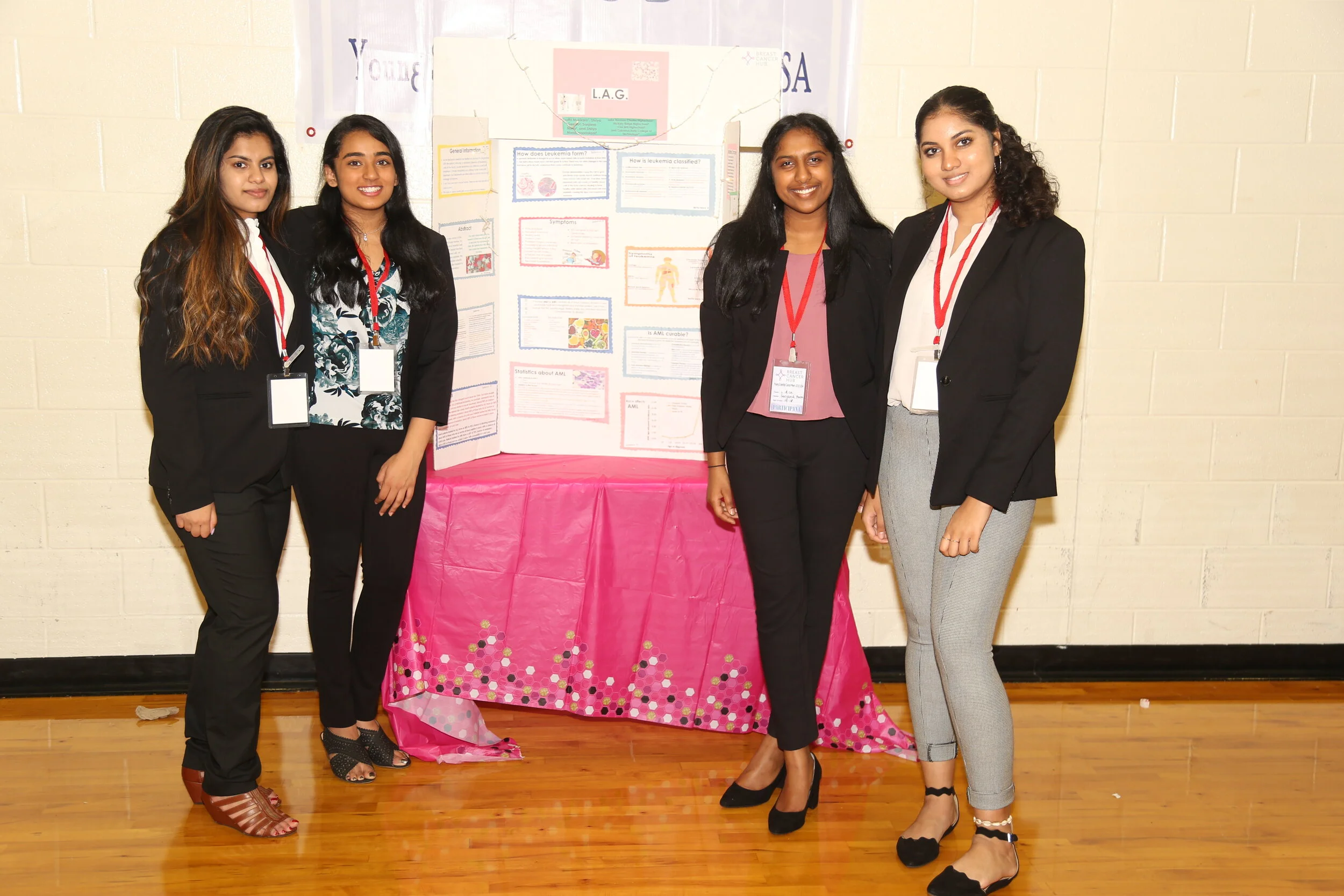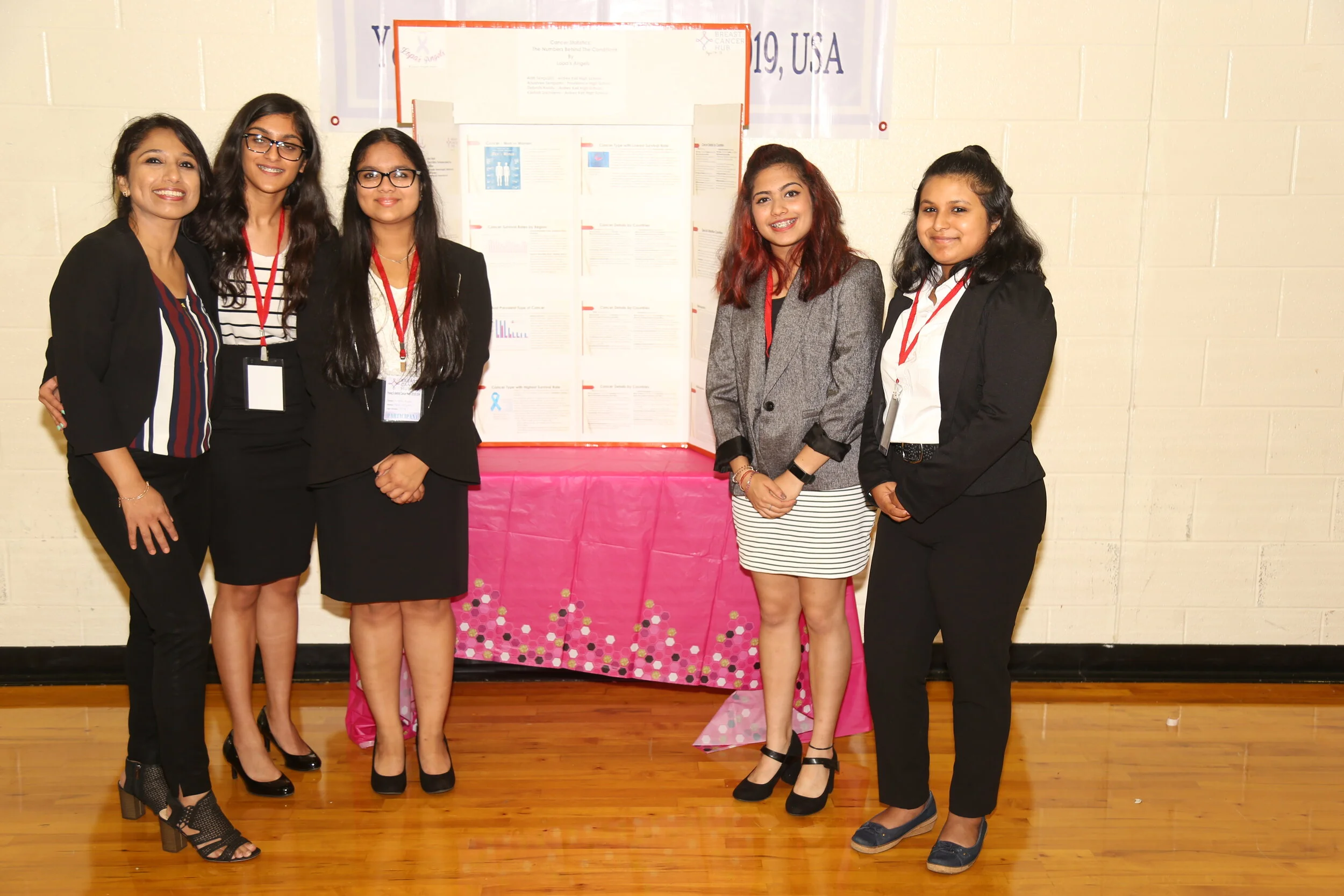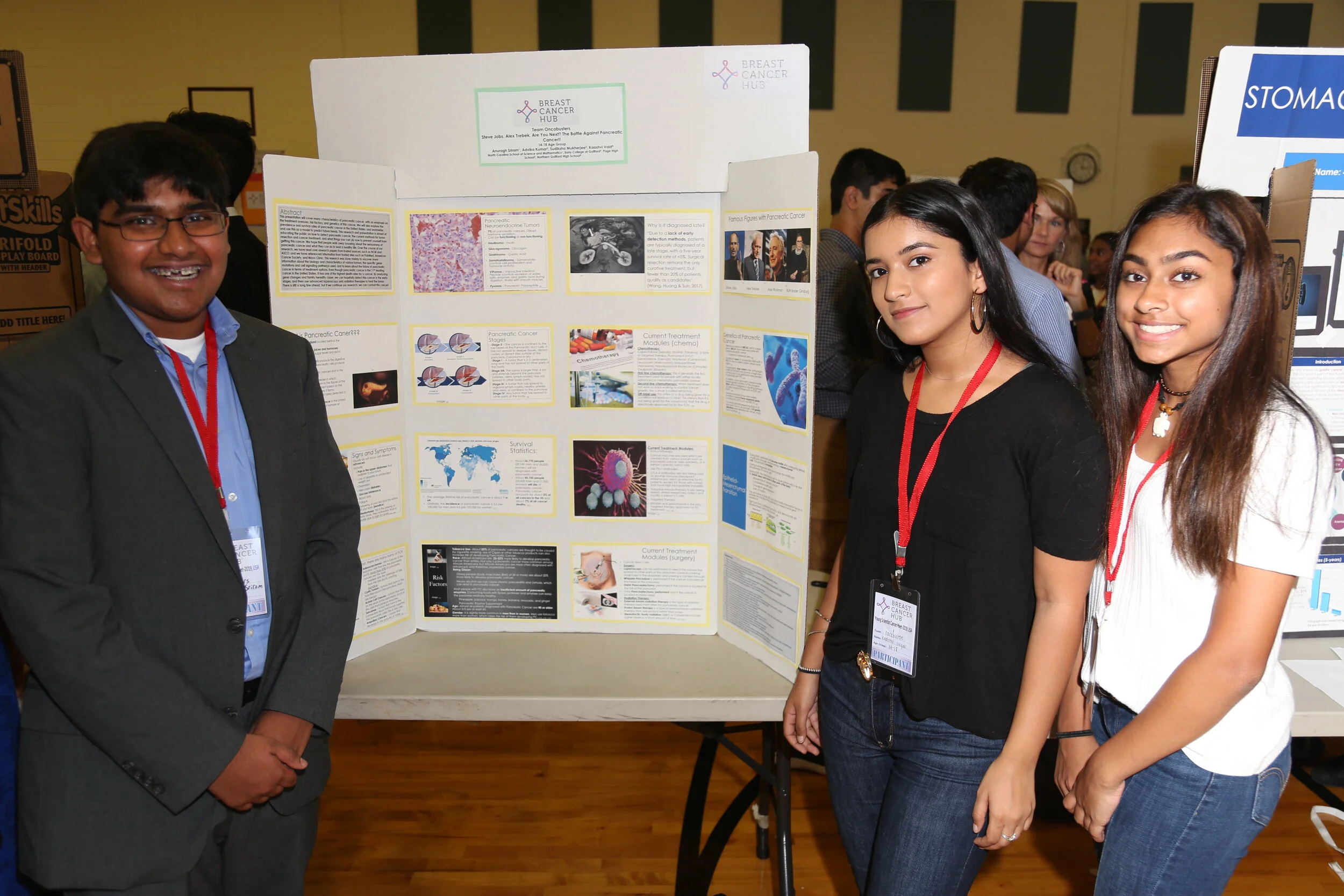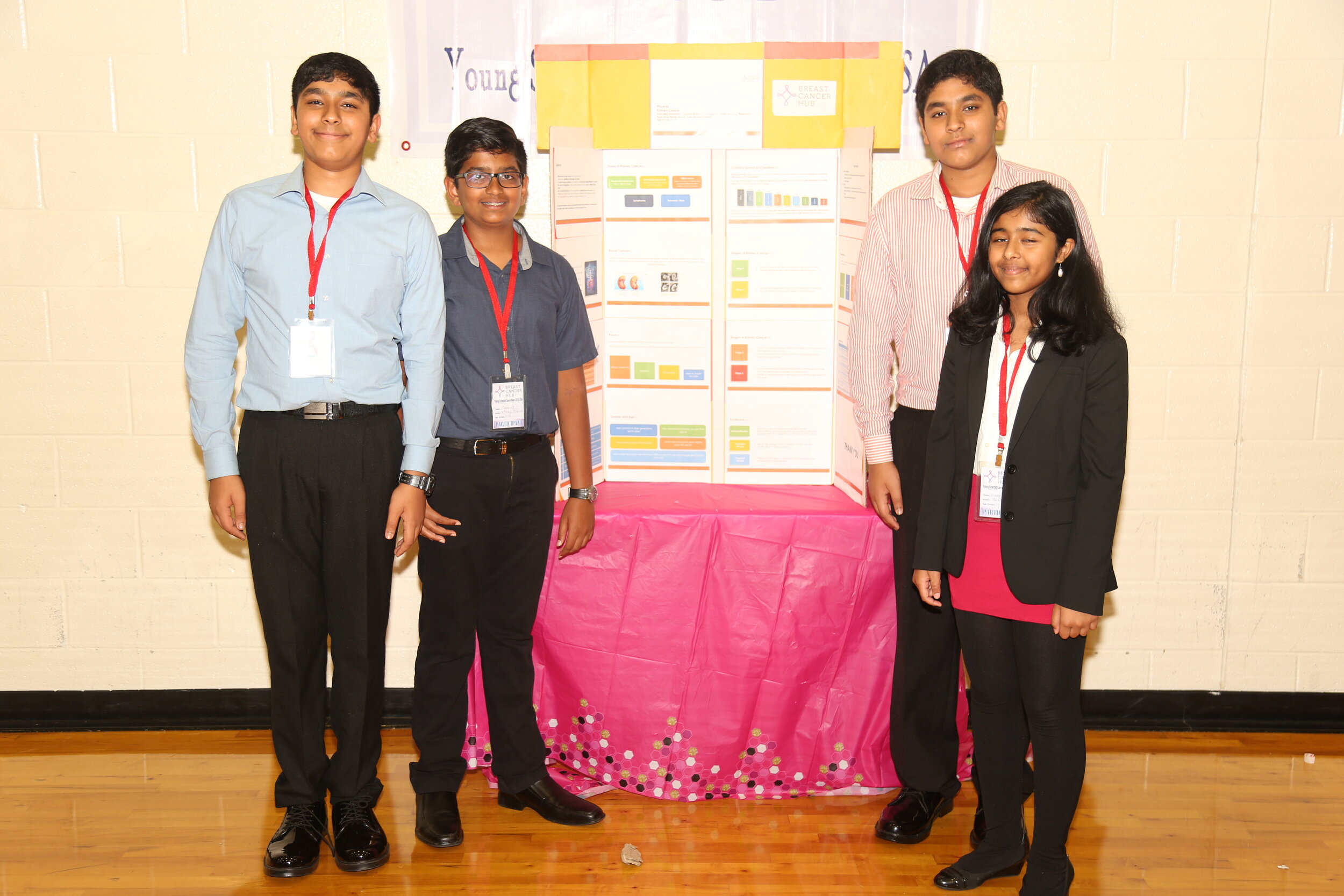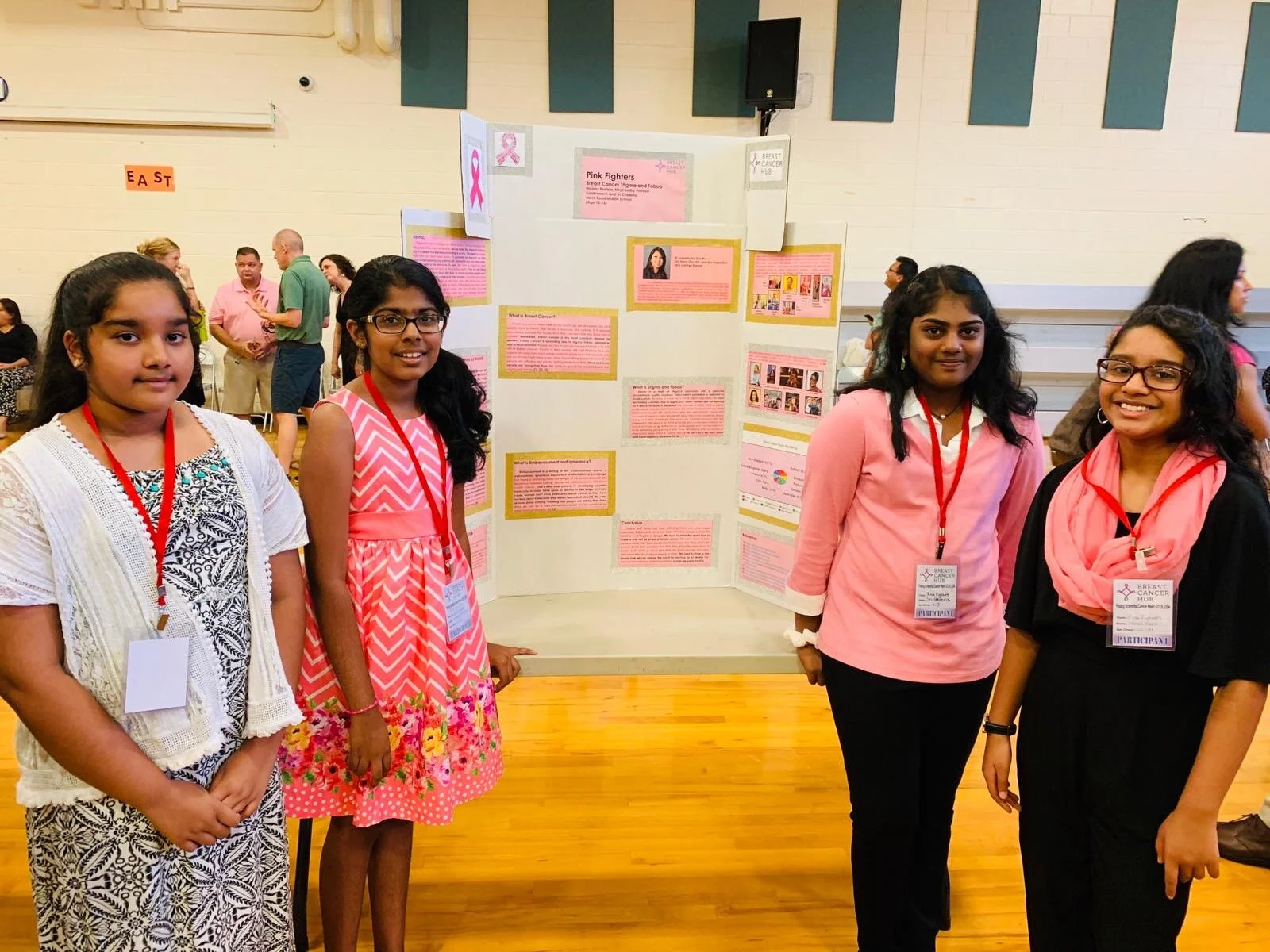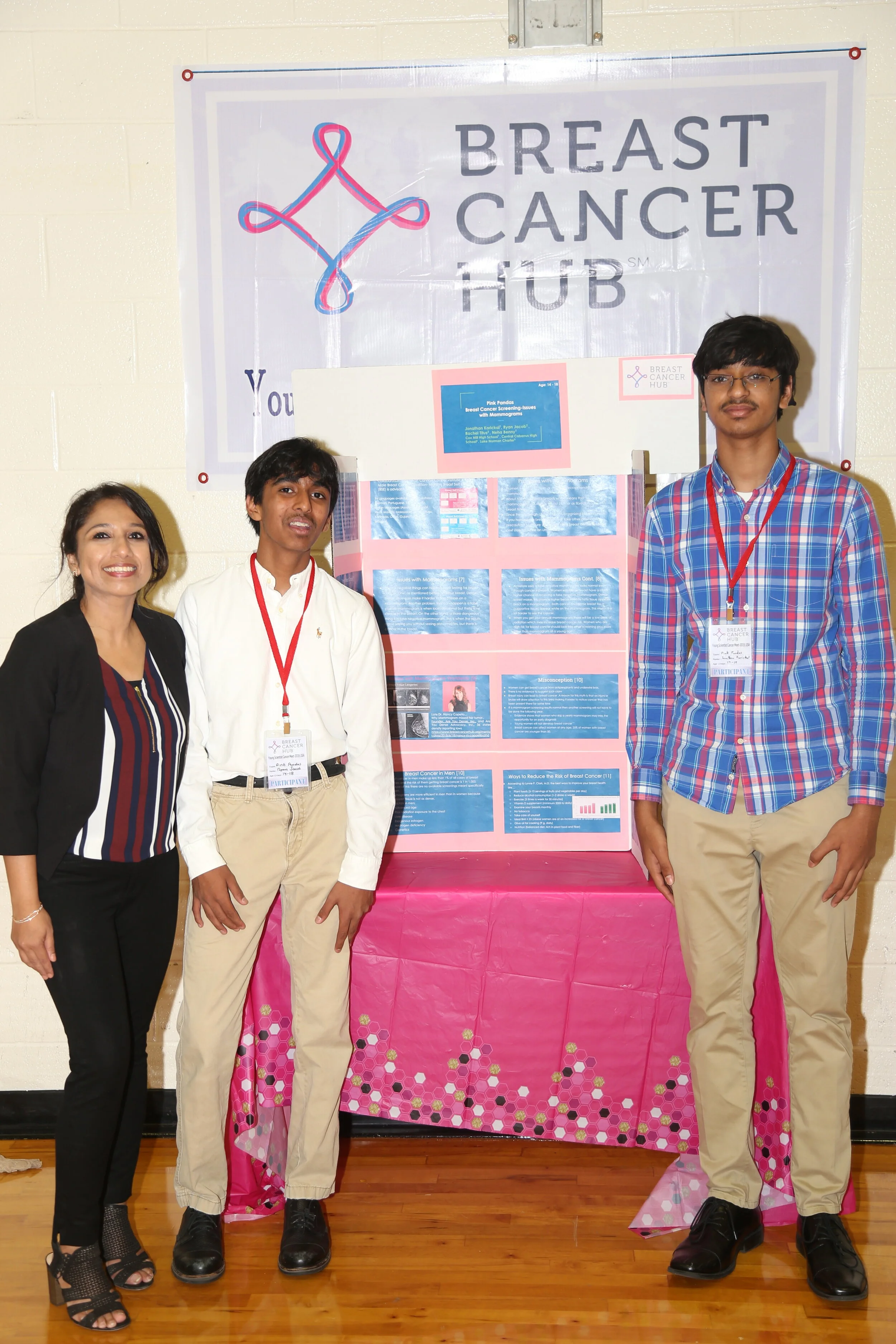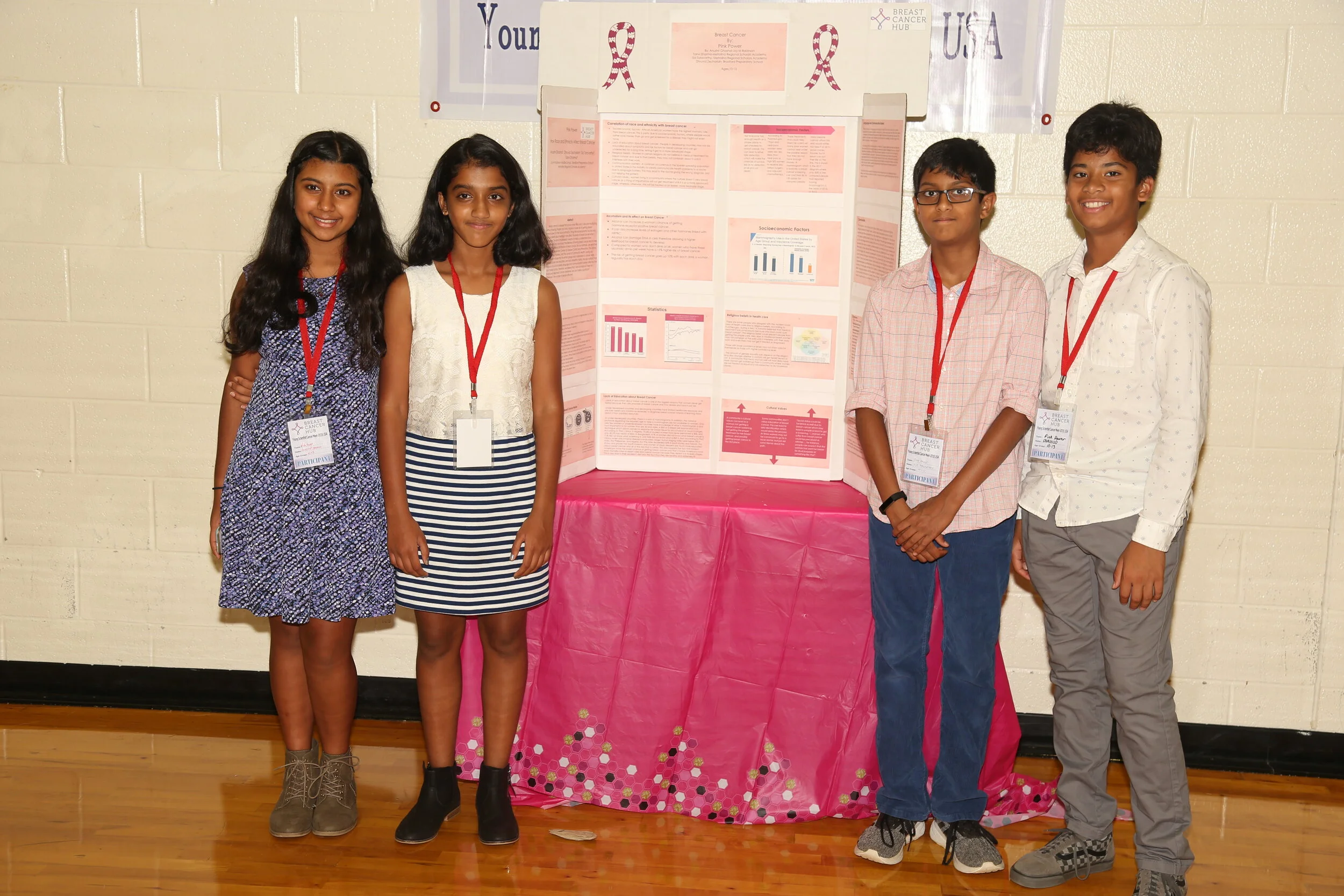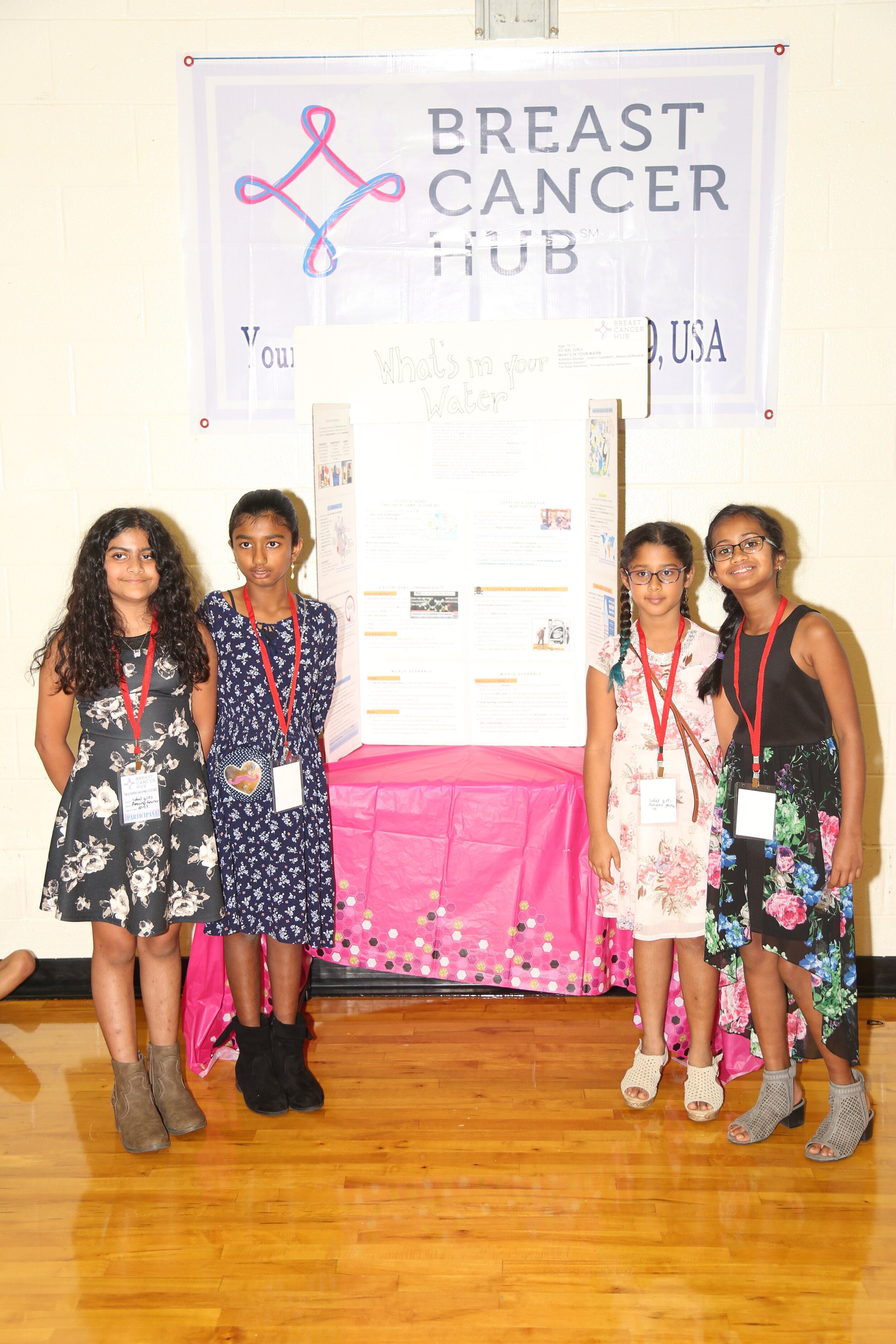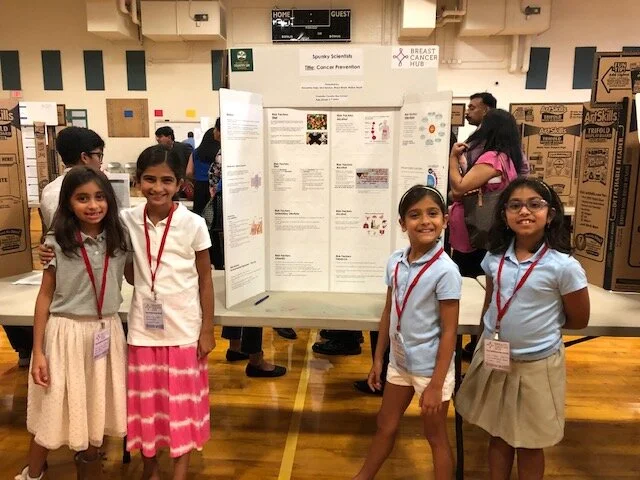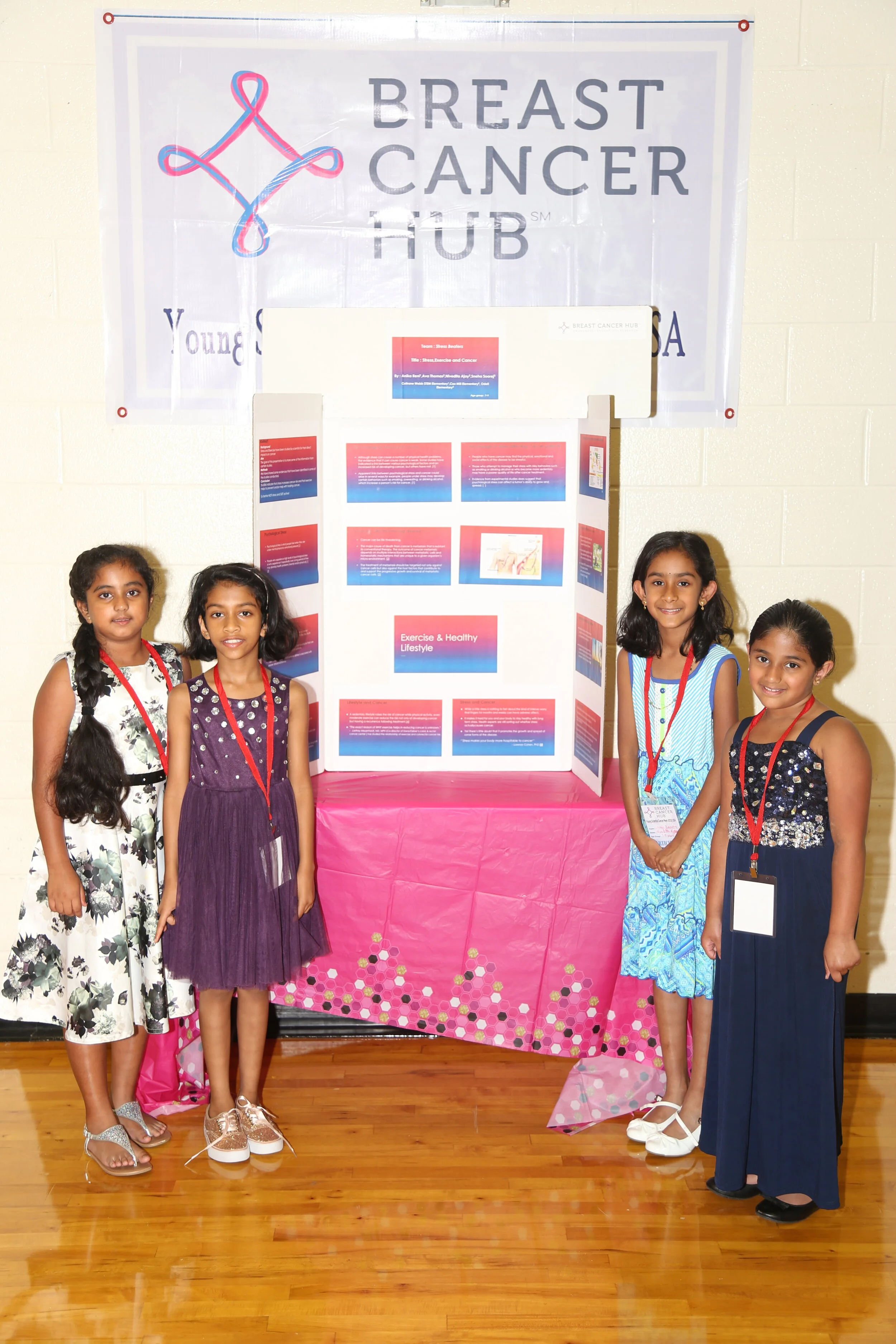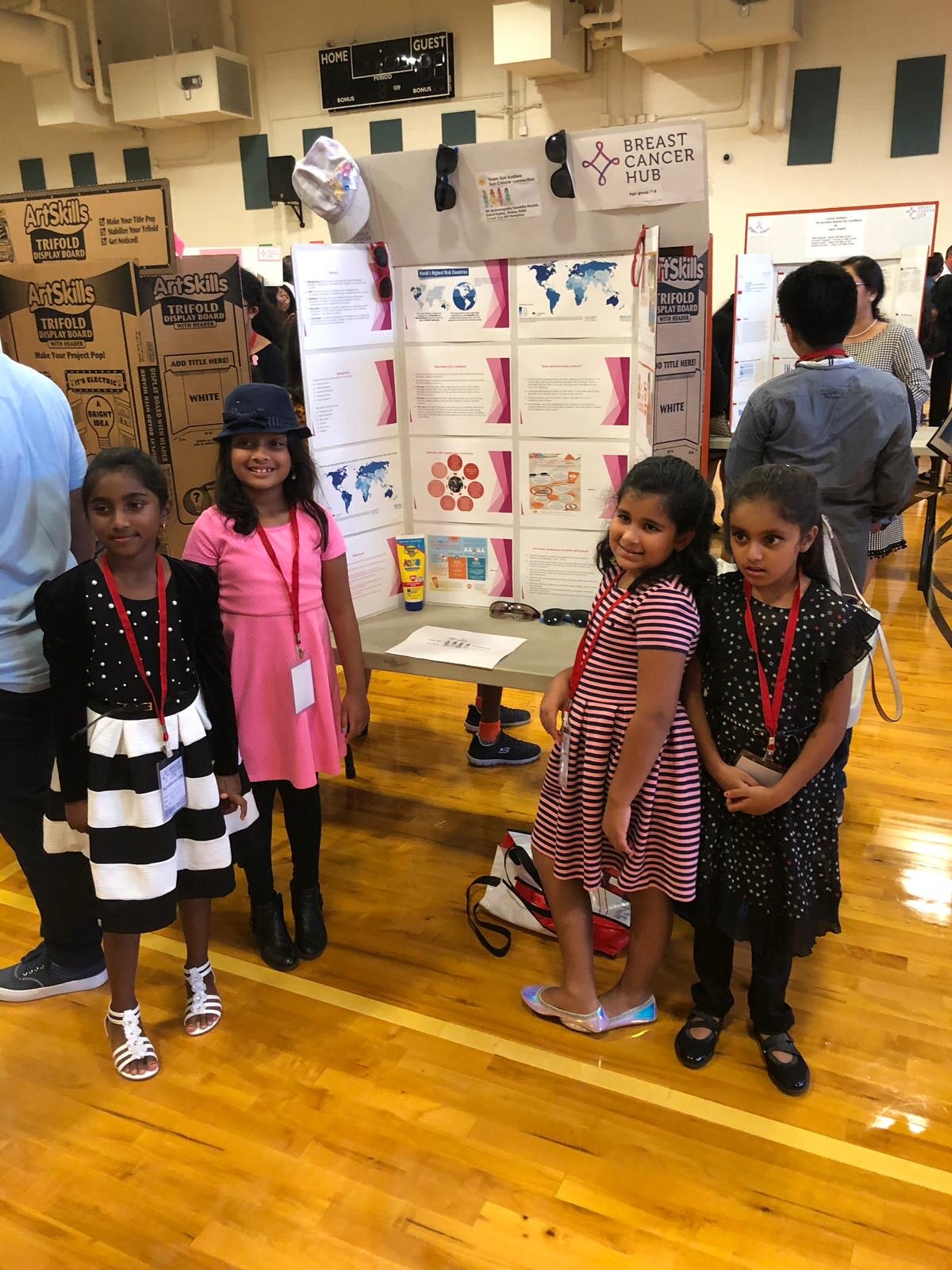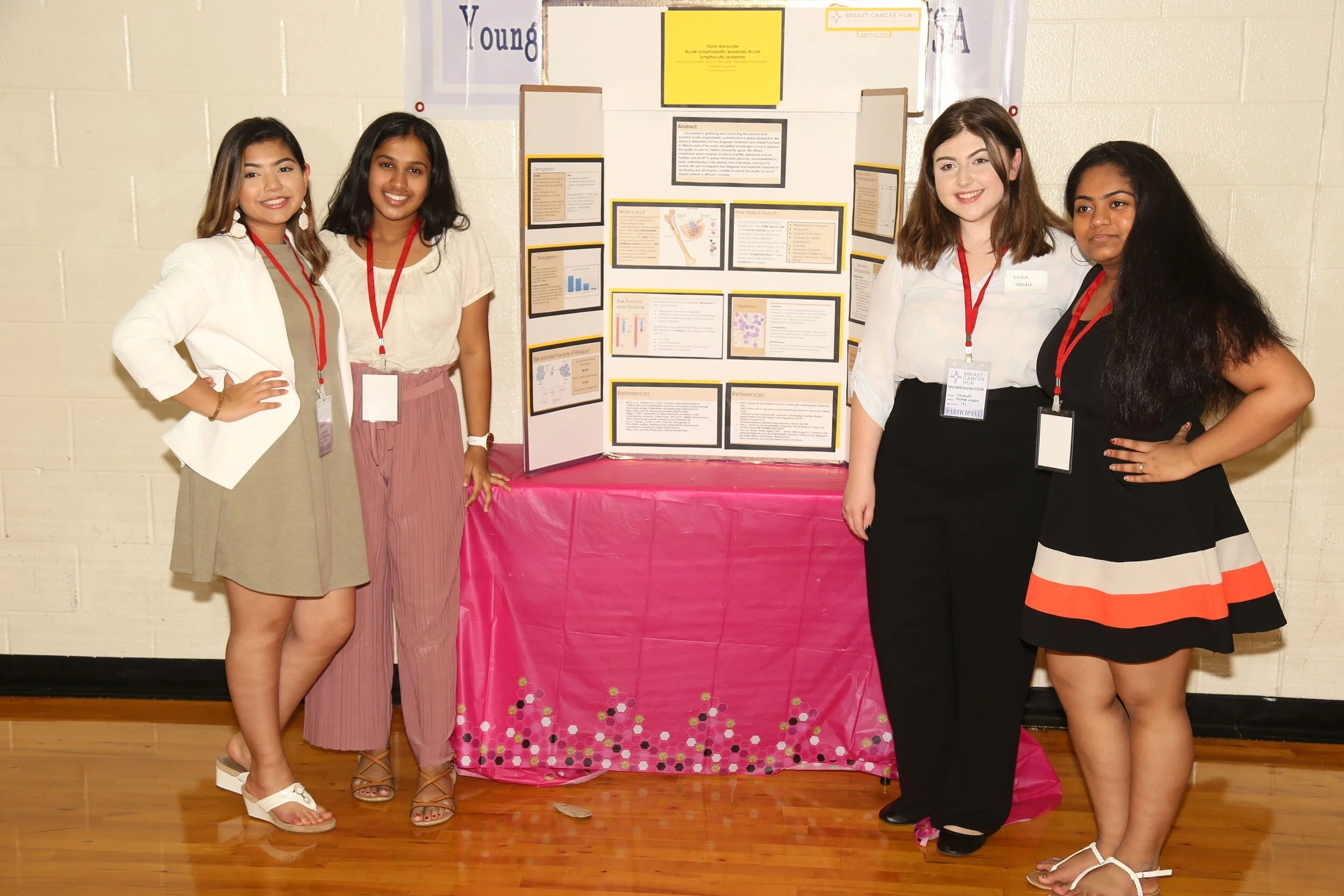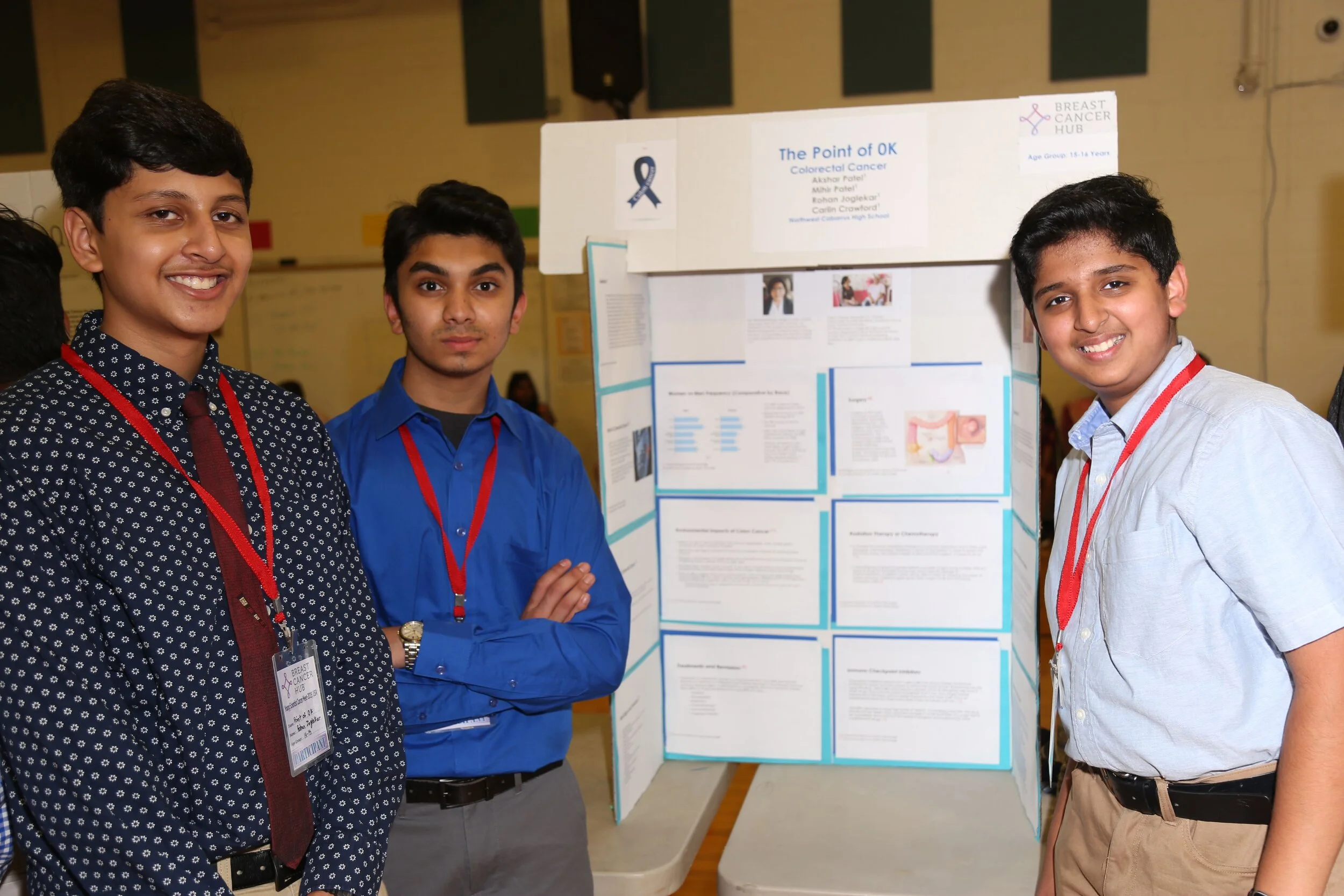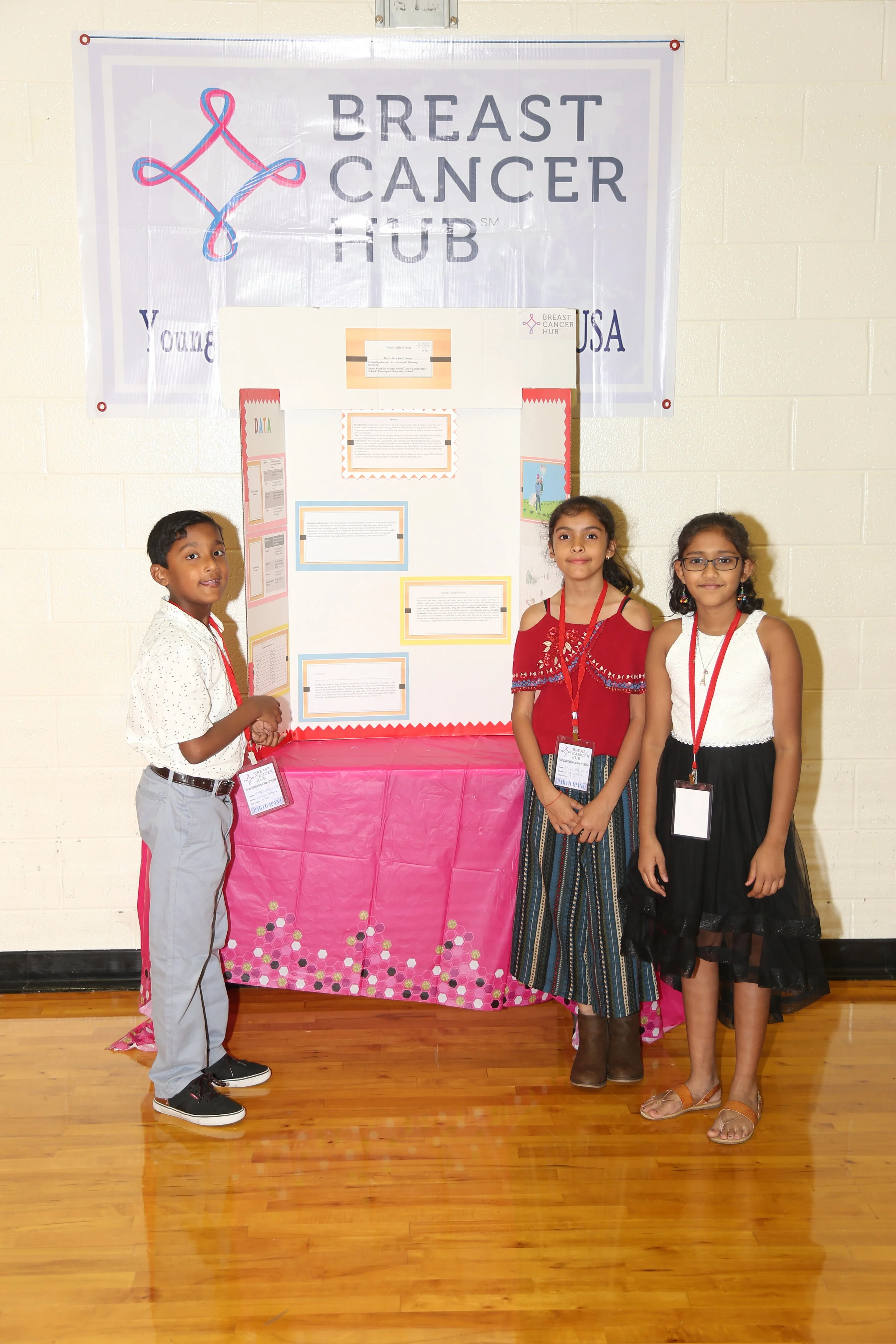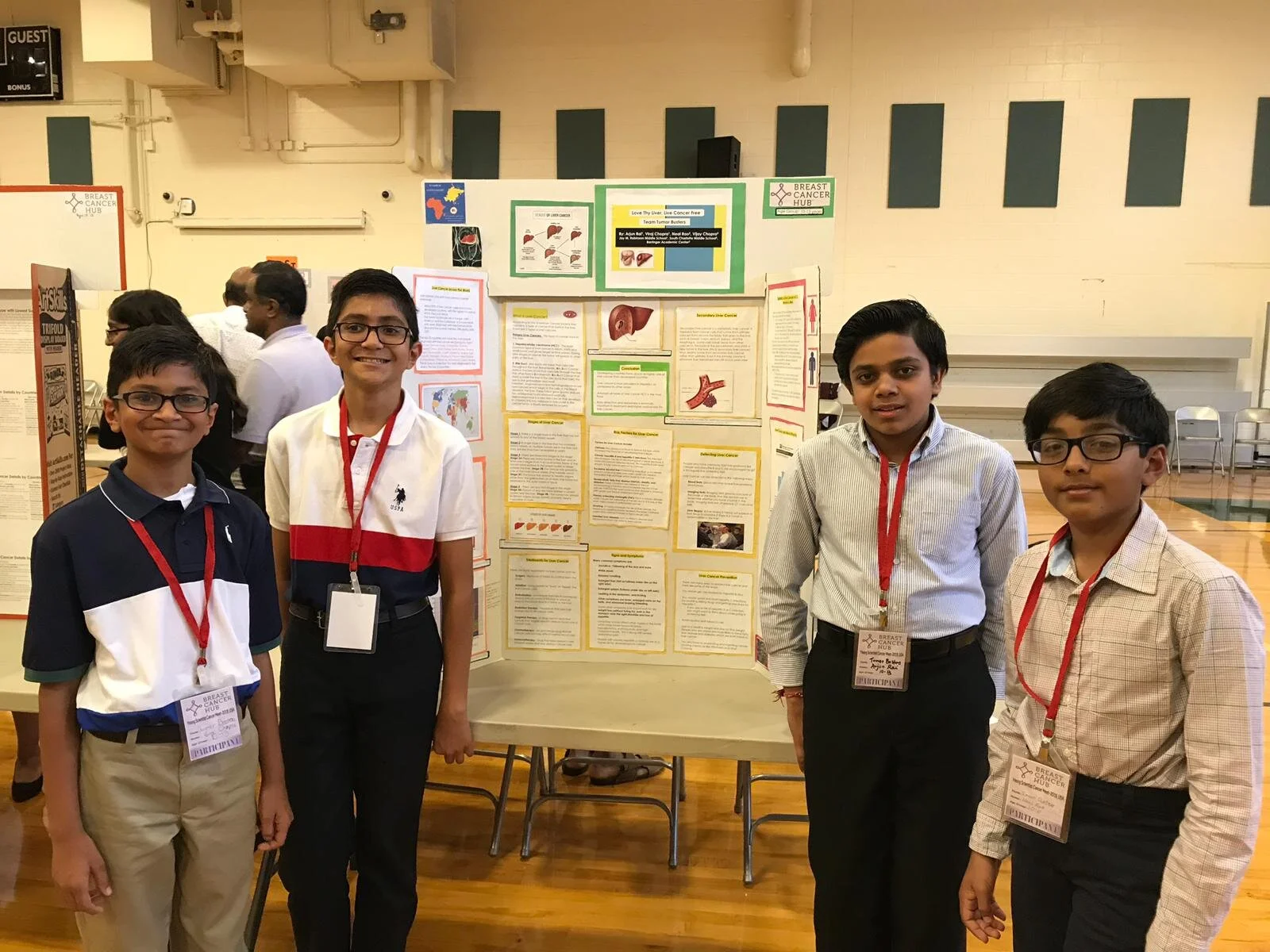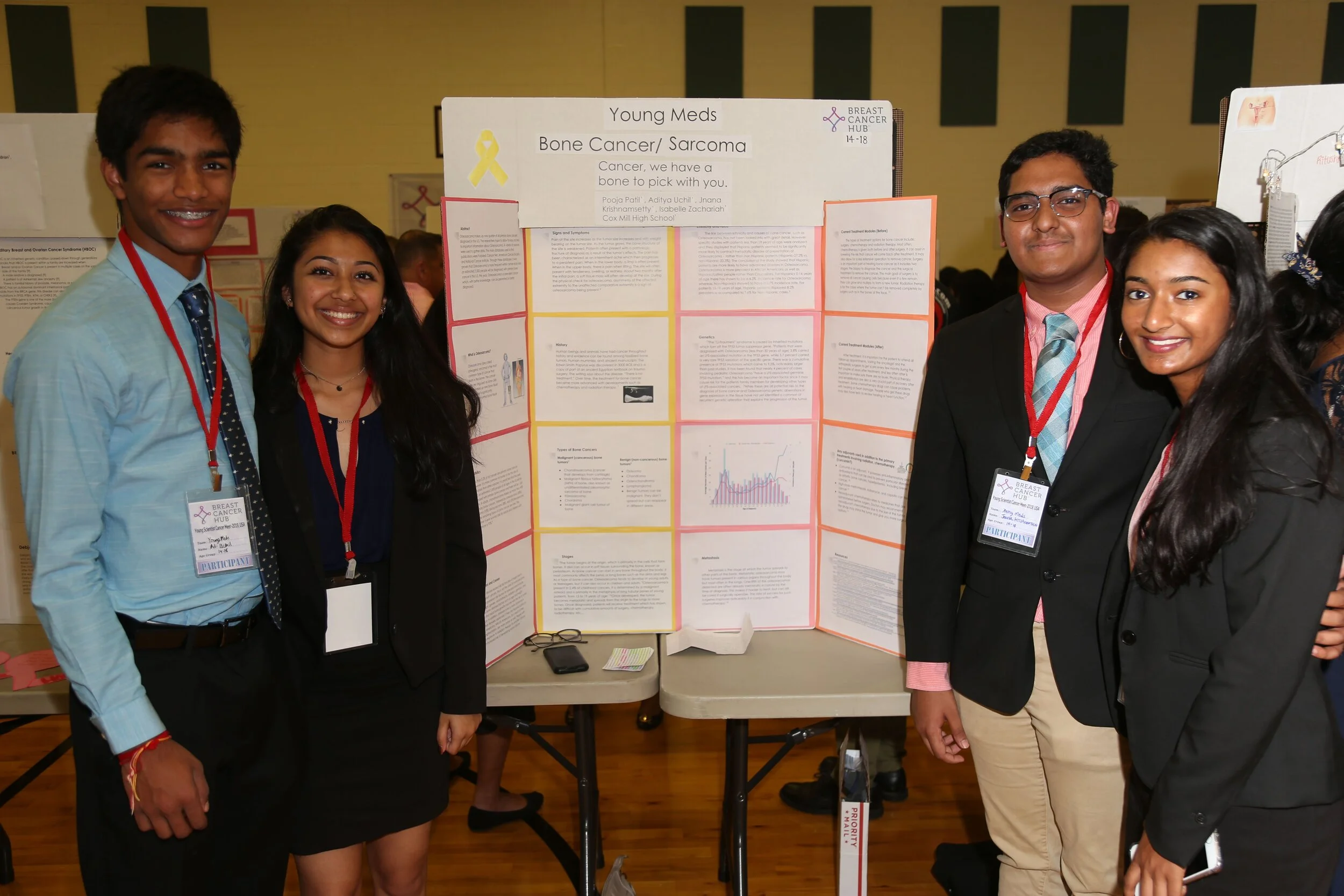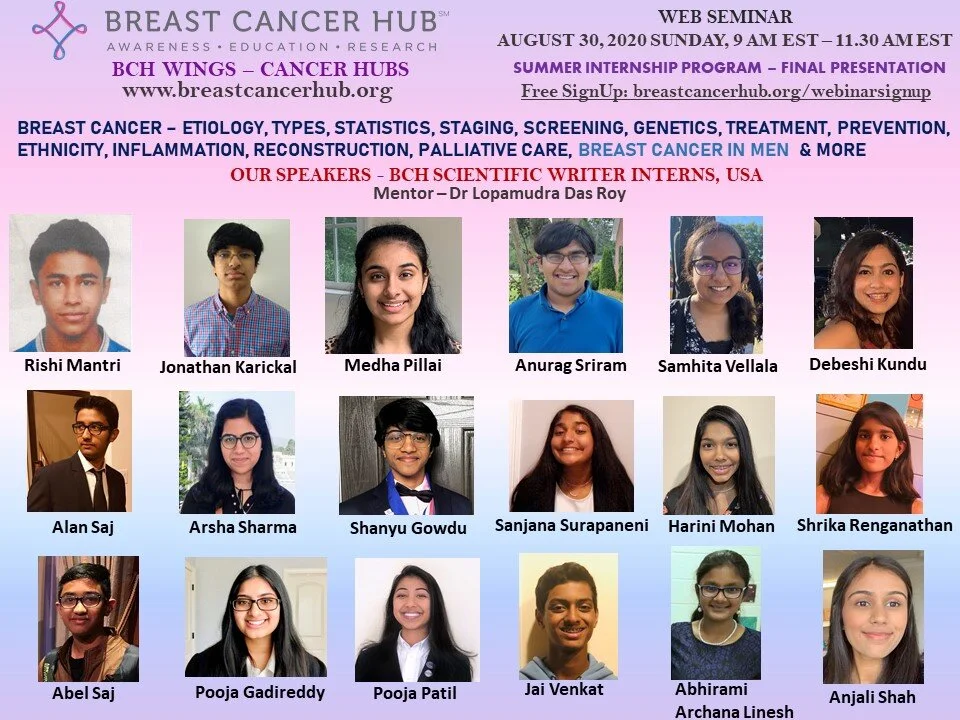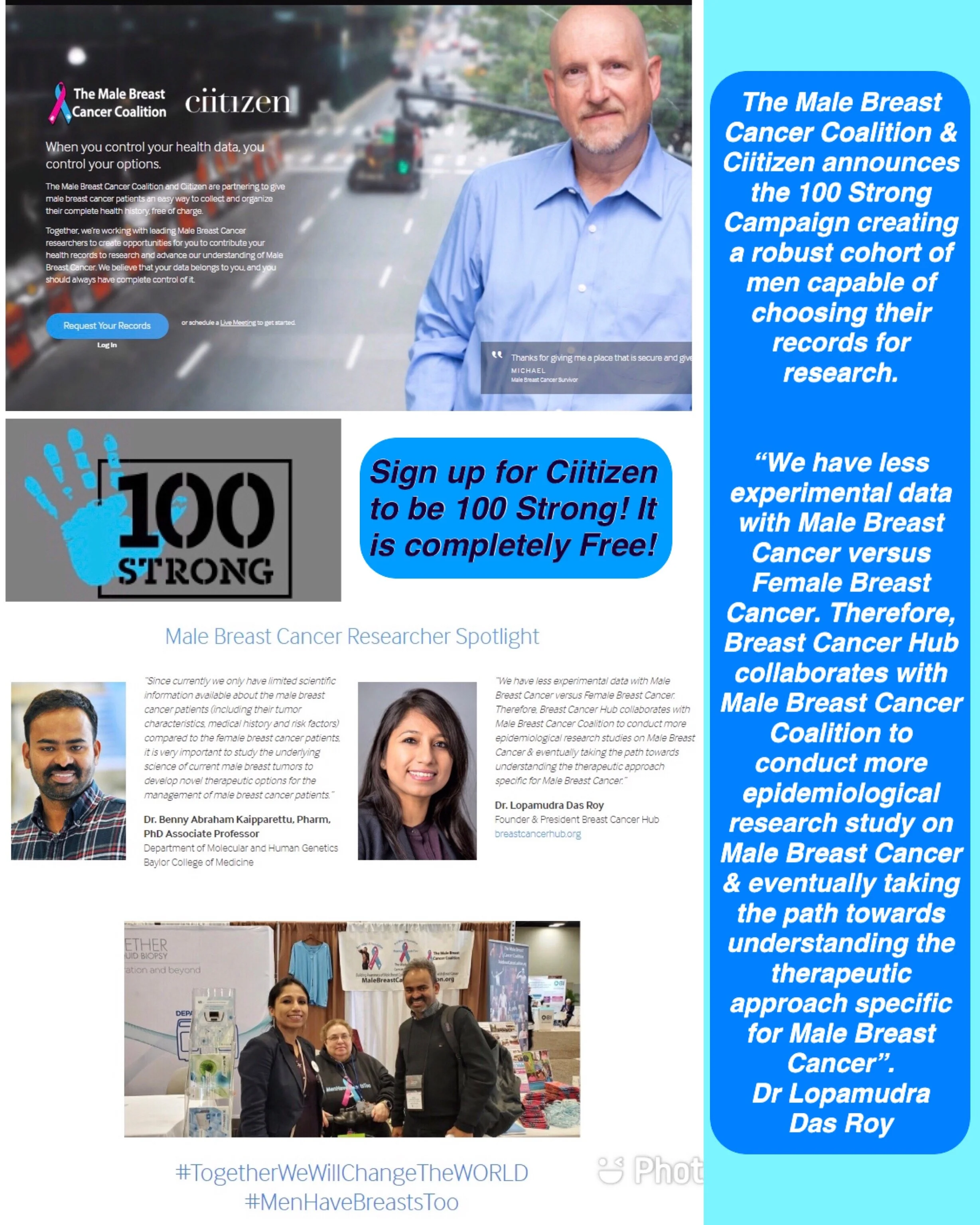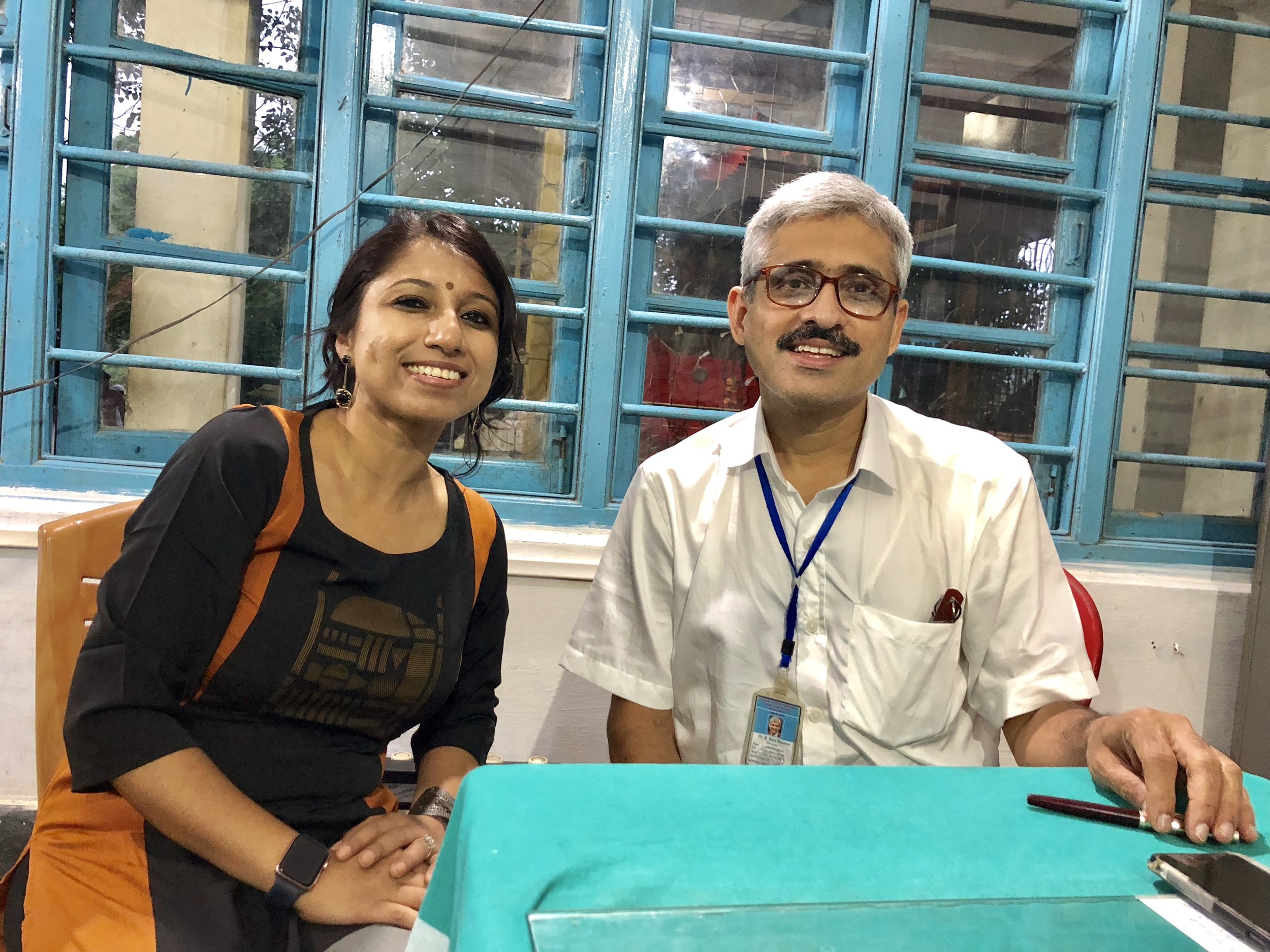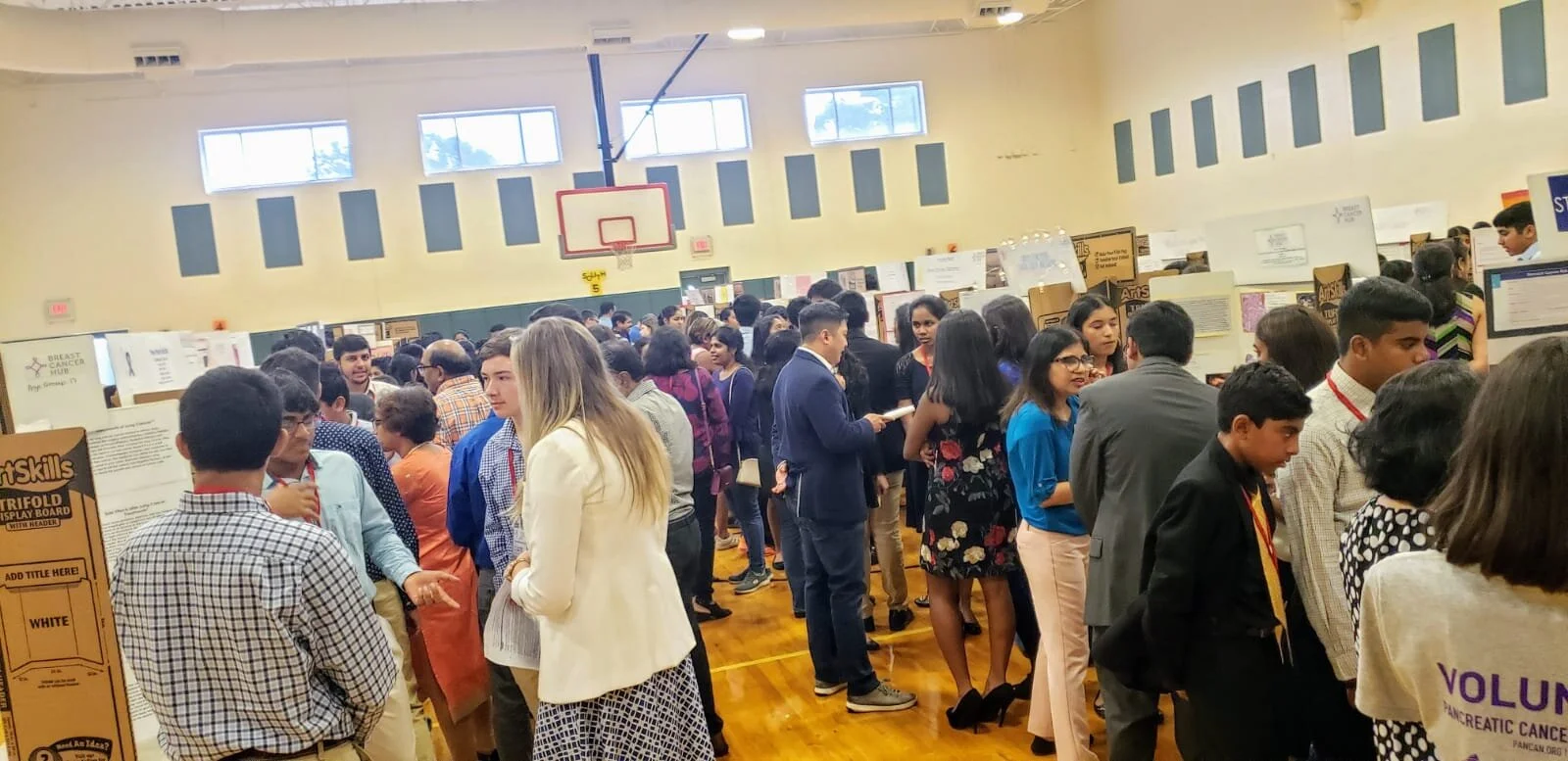
BCH Research proposal - approved & clearance received from institutional review board (irb, USA) and institutional ethics committee India and Sierra Leone, Africa.
**Principal investigator of BCH Reseach, Dr Lopamudra Das Roy's Research contributions:Click here
****PRINCIPAL INVESTIGATOR - DR LOPAMUDRA DAS ROY's Research contributions
Breast Cancer Hub Epidemiological Research & Clinical Data Analysis Study:
USA: Research approved by WCG IRB (Institutional Review Board, USA). IRB Protocol number: 20204167 (Order #1-1375632-1). IRB is in compliance with good clinical practices as defined under the U.S Food & Drug Administration (FDA), US Dept of Health & Human Services (HHS) regulations & the International Conference on Harmonisation (ICH) guidelines.
Principal Investigator: Dr Lopamudra Das Roy, Founder & President - Breast Cancer Hub Corporation, USA
India: Research approved by Institutional Ethics Committee (IEC), Protocol Number: IEC/1/34/2021. St John’s Medical College and Hospital, Bangalore, India.
Principal Investigator (PI) {USA, India & Global Study}: Dr Lopamudra Das Roy, Founder & President - Breast Cancer Hub Corporation, USA
CO - PI (India Study): Dr Rakesh S. Sharma, Associate Professor, Dept of Surgical Oncology, St John’s Medical College Hospital, Bangalore, India
Sierra Leone, Africa: Office of the Sierra Leone Ethics and Scientific Review Committee; Protocol# 015/03/2024.
Principal Investigator: Dr Lopamudra Das Roy. Study Collaborator: Mrs. Cremelda Parkinson Pratt
Research Vision
BCH Cancer Research penetrates into the untapped sectors for substantial impactful scientific analysis, working towards changing healthcare policies, and come up with solutions at the grassroots level.
Lack of global clinical data on Breast Cancer across demographics and ethnicity, especially from the developing world always bothers me. The survival frequency of Breast Cancer is very low in the developing world. I believe, this critical situation won’t be taken seriously until and unless we understand the status and frequency of Cancer collectively represented from all the cities & villages (remote) across developing countries through appropriate data collection and analysis. We bridge the gap between the developed and developing world to uplift the research potential and bring into limelight the current situation of Breast cancer & other type of Cancer in the urban & rural sectors across the globe, and try to decipher the hidden elements that may eventually help in the treatment schema. We are also working on other type of Cancers in addition to Breast Cancer.
Why we come together in research?
Collaborative and unified work create impactful & substantial results for the society and mankind. We bridge the gap between the developed and developing world to uplift the research potential. We join forces with oncologists, clinicians, and scientists/researchers. We are very optimistic and look forward to our research together, to bring into limelight the current situation of Breast cancer, Oral Cancer & Cervical Cancer and other types of Cancer in the urban & rural sectors across the globe. Our research focuses on BCH Epidemiological Research Study, BCH Clinical data analysis, Review Cancer Research articles focusing on Global scenario (de-briefing the scientific articles and translating the findings in simple words).
AIMS:
Clinical Data Analysis of Cancer Patients/Survivors: We aim to decipher the various factors that cause the advancement of non-metastatic breast cancer into metastatic breast cancer so that we can understand the underlying factors & analyze the determinants. To shed light on the biological and circumstantial factors that may affect the progression , to gauge the occurrence of Breast Cancer in various age groups & ethnicities, if younger populations are affected more recently, the lifestyle effects & the late detection scenario in the Developing world as compared to the Developed world.
a. To gauge the occurrence of breast cancer in various cohorts in USA, India & Globally.
b. To understand if younger populations or populations of certain ethnicities present breast cancer more often than other populations.
c. To study the occurrence of the BRCA & other mutations and the prevalence of predominant receptor status based on ethnicity and age.
d. To understand other variables and factors that may affect the progression of non-metastatic breast cancer to metastatic breast cancer.
In addition, we plan to conduct Clinical data analysis of other types of Cancer and help determine the cause of advancement of non-metastatic to metastatic cancer so that eventually our analysis report will help increase the survival with Breast and other Cancers.
Population based Epidemiological Research Study in diverse cohorts to gauge the general awareness of the population in relation to breast cancer detection and prevention so that we can make an impact & bring a change on the concept of Early Detection Screening in the Developing countries and increase the survival as Early detection saves lives. Through these efforts, we also hope to determine how proactive the community is when it comes to early detection. Within this aim, we have the following sub-aims:
a. To understand what percentage of the general population, pursue regular screening.
b. To understand what percentage of the general population are aware of the purpose of mammograms and ultrasounds.
c. To spread awareness on the occurrence of breast cancer in men.
d. To encourage women & men to seek opportunities for early detection.
e. To understand the effects of lifestyle, culture & environment contributing to cancer development and prognosis.
In addition to Breast Cancer, we are also working on other types of Cancers.
Village Epidemiological Research Study - We hope to assess and rectify the stigma that surrounds breast cancer in India through a door-to-door epidemiological study in the villages Breast Cancer Hub adopted. We conduct a door-to-door study in India in the villages for Cancer Screening Early detection & Management, to uncover various factors that correlate with breast cancer & other types of Cancer.
Purpose:
a. To push for earlier detection in all communities, also especially in younger populations and underserved communities.
b. To help destigmatize breast cancer in underprivileged communities in order to encourage more individuals to seek out mammograms, ultrasounds, self-breast exams, and clinical breast exams.
c. To gauge the degree of knowledge in the general community in regards to Cancer screening methods.
d. To understand the effects of lifestyle & environment affecting the community with the occurrence of Cancer.
e. To help eliminate the social stigma that surrounds the breast cancer & other cancers in developing and underdeveloped nations.
Research articles in simple words: Current research findings on cancer published on other authentic scientific journals to be reported in simple language, layman terms, understandable by mass public - de-briefing the scientific articles and translating the vital findings in simple words to generate awareness in the community.
Scientific platform that will offer high-level disease state education materials to general population, including cancer patients, and will also serve as an in-depth scientific resource for health care professionals. Life Saving Screening Educational Cards generated & published. https://www.breastcancerhub.org/educational-cards
Young scientist cancer meet: Breast Cancer Hub brings awareness and art of scientific analysis and thought leadership in the students that will encourage research ideas, data analysis, foundation for networking, collaborations and most importantly empowering them with knowledge about cancer prevention and the importance of early detection that can save lives. Team description and their Research work/exhibits published on BCH newsletter & website, reflecting students’ research experience, eventually helping in their career path. Students will relate science to the real world by applying their knowledge in meaningful ways for future development & growth, contributing towards community service towards the cause of cancer.
INFORMATIVE BCH ARTICLES
dR lOPAMUDRA DAS ROY'S RESEARCH FINDINGS AND PUBLICATIONS
BREAKTHROUGH SCIENTIFIC DISCOVERIES:
• Discovered the molecular signaling pathway between Arthritis (Inflammation) and Breast Cancer Metastasis and received Press release from American Association of Cancer Research in 2012 at Chicago in addition to worldwide Press Releases.
• Discovered the direct role of MUC1 protein in initiating epithelial to mesenchymal transition (EMT) in pancreatic cancer.
• Developed a novel antibody-based blood test for earlier detection of Breast Cancer.
RESEARCH GRANTS AWARDED AS PRINCIPAL INVESTIGATOR:
1. Source: SBIR (Small business innovation research) contract grant issued by National Cancer Institute (NCI). Title: Molecularly Targeted Radiation Therapy for Cancer Treatment. Role: Principal Investigator (2016-2017)
2. Source: Department of Defense cancer research Program. Title: A novel association and therapeutic targeting of neuropilin-1 and MUC1 in Pancreatic Cancer. Role: CO-Principal Investigator (2012-2014)
3. Source: Department of Defense Breast cancer research Program: BCRP BC087792 Award . Title: Evaluate the mechanism of enhanced metastasis induced by arthritis. Role: Principal Investigator (2009-2012)
Breast Cancer Hub Research: WIRB USA and IEC INDIA approved, Africa in progress.
4. Source: Breast Cancer Hub. Title: Breast Cancer Hub Epidemiological Research Study & Clinical Data Analysis. Role: Principal Investigator (2017 onwards)
RESEARCH PUBLICATIONS
RESEARCH PUBLICATIONS on Cancer Molecular Signaling pathways, Targeted Therapy, Tumor growth & Metastasis, Cancer Treatment, Immunotherapy, Cancer Screening, and Healthcare Policies Changes
Summary of Research and Academics experience along with Scientific Peer Reviewed Publications (Contribution to Science)
Doctoral Research-2004-2007: focused on evaluating the genotoxic potential of pharmaceuticals {Chloroquine (CHQ), metronidazole (MTZ), Ciprofloxacin (CIP)} using chromosome aberration (CA), micronucleus (MN), and sperm head abnormality (SA) assays in vivo in Swiss albino mice. The interaction between a low dose of radiation and pharmaceuticals, as well as the effect of vitamin C on pharmaceuticals-induced genotoxicity, was also evaluated. We found that these drugs induced dose dependent increase in the frequency of CA as well as MN in polychromatic erythrocytes. Supplementation with vitamin C prior to drug treatment significantly reduced the frequency of CA as well as MN. Our findings also suggest that these drugs may sensitize bone marrow cells to radiation exposure and enhance genotoxicity.
1. Das Roy, L., Mazumder, M., and Giri, S. (2008). Effects of low dose radiation and vitamin C treatment on chloroquine induced genotoxicity in mice. Environ. Mol. Mutagenesis. 49:488- 495.
Das Roy, L., and Giri, S. (2007). Genotoxicity of ciprofloxacin in mammalian test system. Journal of Pediatric Oncall. 70:39-40. (National Indian Journal).
3. Das Roy, L., Giri, S., Singh, S., and Giri, A. (2013). Effects of radiation and vitamin C treatment on metronidazole genotoxicity in mice. Mutation Research. doi:pii: S1383-5718(13)00029-6. 10.1016/j.mrgentox.2013.02.001.
4. Singh, S., Das Roy, L., and Giri S. (2013). Curcumin Protects Metronidazole and X-ray Induced Cytotoxicity and Oxidative Stress in Male Germ Cells in Mice. Prague Med Rep, 114(2):92-102.
Breast cancer and Arthritis- 2007-2012 (Mayo Clinic & UNCC): Established a link between inflammation and breast cancer metastases, and that there are therapies and treatments that could be developed to decrease the metastases. Specifically, we have identified the key cytokines associated with the enhanced metastasis. We recognized the role of mast cells and SCF/c-Kit signaling in breast cancer with arthritis. The other route of mechanism reported is that IL-17 is up-regulated in the arthritic mice with Breast Cancer and blocking the IL-17 pathway may significantly reduce the rate of metastasis. These insights are fostering new anti-inflammatory therapeutic approaches to cancer development. We are the pioneer of this research investigation and in discovering that breast cancer associated metastasis is significantly augmented due to arthritis and I received press release for discovering the underlying mechanism. Our discoveries and insights are fostering new anti-inflammatory therapeutic approaches to cancer development. The data generated not only reveal the underlying mechanism of high susceptibility to bone and lung metastasis in an arthritic condition, but the combination therapies may lead to treatment modalities that will be capable of reducing tumor burden, and preventing relapse and metastasis in arthritic patients with breast cancer.
5. Awarded with grant on behalf of the Fiscal year 2008(FY08) Department of Defense (DOD) Breast cancer research program (BCRP). Title of the proposal: “Evaluate the Mechanism of Enhanced Metastasis Induced by Arthritis”. Role: Principal investigator, 2009-2012.
6. “Arthritis augments breast cancer metastasis: role of mast cells and SCF/c-Kit signaling”, Received Press release at AACR Annual Meeting 2012, held in Chicago.
7. Nature Precedings (2008). Available online: Das Roy, Lopamudra, Pathangey, Latha, Tinder, Teresa, and Mukherjee, Pinku. Breast Cancer Associated Metastasis is Significantly Increased in a Model of Autoimmune Arthritis. https://www.nature.com/articles/npre.2008.2632.1
8. Das Roy, L., Pathangey, B.L., Tinder, L.T., Schettini, L.J., Gruber, H.E., and Mukherjee, P. (2009). Breast cancer associated metastasis is significantly increased in mice with autoimmune arthritis. Breast Cancer Res. 11(4):R56. doi: 10.1186/bcr2345.
9. Das Roy, L., Pathangey, B.L., Tinder, L.T., Schettini, L.J., Gruber, H.E., and Mukherjee, P. (2011). Collagen induced arthritis increases secondary metastasis in MMTV-PyV MT mouse model of mammary cancer. BMC Cancer, 11:365. doi: 10.1186/1471-2407-11-365.
Das Roy, L., Curry, J., Sahraei, M., Kidiyoor, A., Besmer, D., Gruber, H.E and Mukherjee, P. (2013). Arthritis augments breast cancer metastasis: Role of mast cells and SCF/c-Kit signaling. Breast Cancer Res. 11;15(2):R32. doi: 10.1186/bcr3412
Das Roy, L, Sahraei, M., Gruber, H.E., Besmer, D and Mukherjee, P. (2014). Systemic neutralization of IL-17A significantly reduces breast cancer associated metastasis in arthritic mice by reducing CXCL12/SDF-1 expression in the metastatic niches. BMC Cancer, doi: 10.1186/1471-2407-14-225.
Pancreatic Cancer Research: 2007-2017 ((Mayo Clinic & UNCC): MUC1 plays a crucial role in the oncogenic signaling pathways of human pancreatic cancer and we discovered the direct role of MUC1 protein in initiating epithelial to mesenchymal transition (EMT) in pancreatic cancer. We also identified the oncogenic signaling pathways driven by MUC1 in pancreatic cancer.
12. Awarded with grant from Department of Defense (DOD) Breast cancer research program (BCRP). Title: “A novel association and therapeutic targeting of neuropilin-1 and MUC1 in Pancreatic Cancer.” Role: CO-Principal Investigator, 2012-2014.
13. Das Roy, L., Sahraei, M., Subramani, D., Besmer, D., Nath, S., Tinder, T., Kandavel, S., Lee, Y., Hwang, SL., Gendler, S., and Mukherjee, P. (2011). MUC1 enhances invasiveness of pancreatic cancer cells by inducing epithelial to mesenchymal transition. Oncogene Nature publication, doi 10.1038/onc.2010.526.
Besmer M, L., Curry, J., Das Roy, L., Tinder, T., Schettini, J., Hwang, S., Lee, Y., Gendler, S.J., and Mukherjee, P. (2011).Pancreatic ductal adenocarcinoma mice lacking mucin 1 have a profound defect in tumor growth and metastasis. Cancer Research. 2011 Jul 1;71(13):4432-42.
Sahraei, M., Das Roy, L., Curry, J., Tinder, L.T.,Nath, S., Besmer, D., Kidiyoor, A., Dalia, R., Gendler, S., and Mukherjee, P. (2011). MUC1 plays a crucial role in the oncogenic signaling pathways of human pancreatic cancer cells. Oncogene Nature publication, doi 10.1038/onc.2011.651.
16. Schettini, J., Kidiyoor, A., Besmer, D., Tinder, T., Das Roy, L., Lustgarten, J., Gendler, S and Mukherjee, P.(2012). Intratumoral Delivery of CpG-Conjugated Anti-MUC1 Antibody Enhances NK Cell Anti-Tumor Activity. Cancer Immunology Immunotherapy, DOI: 10.1007/s00262-012-1264-y.
17. Nath,S., Daneshvar,K., Das Roy, L., Kidiyoor, A., Sahraei, M and Mukherjee, P. (2013) MUC1 induces drug resistance in pancreatic cancer cells via activation of PI3K/Akt pathway and upregulation of multidrug resistance genes. Oncogenesis (2013) 2, e51; doi:10.1038/oncsis.2013.16.
18. Kidiyoor,A., Schettini, J*., Besmer, D*., Rego, S., Nath, S., Curry, J., Das Roy, L., Dreau D., and Mukherjee, P. (2014) Pancreatic Cancer Cells Isolated from Muc1-Null Tumors Favor the Generation of a Mature Less Suppressive MDSC Population. Cancer Immunology Immunotherapy, doi: 10.3389/fimmu.2014.00067.
19. Nath, S., Das Roy, L., Grover, P., Rao, S., and Mukherjee, P. (2015) MUC1 regulates Cox-2 gene in pancreatic cancer. Pancreas 2015;00: 00–00.
20. Zhou,R., Curry,J., Das Roy,L., Grover, P., Moore,L., Wu,S., Kamesh, A., Leung,T., Mukherjee, P. (2016). A Novel Association and Therapeutic Targeting of Neuropilin-1 in MUC1high Pancreatic Cancer. Oncogene Nature Publication, doi:10.1038/onc.2015.516.
Research at OncoTAb, Inc-November 2012-June 2017 (UNCC):
Developed a novel antibody-based blood test (Agkura Personal ScoreTM) for earlier detection of breast cancer (Biomarker). .
21. Awarded with SBIR (Small business innovation research) contract grant issued by National Cancer Institute (NCI) as Principal Investigator. Title: Molecularly Targeted Radiation Therapy for Cancer Treatment
22. Moore, L., Das Roy, L., Zhou, R., Grover, P., Wu, S., Curry, J., Dillon, L., P, Puri., Yazdanifar, M., Puri, R., Mukherjee,P and Dréau,D.. (2016) Antibody guided in vivo imaging for early detection of mammary gland tumors. Translational Oncology, (2016), 9, 295-305.
23. Das Roy, L.,Dhillon, L., Zhou., R., Moore., L, Puri., R., Livasy, C., Mukherjee., P. (2017) A monoclonal antibody with exceptional specificity across major breast cancer subtypes. Genes and Cancer, 8(3-4):536-549.doi:10.18632/genesandcancer.134.
24. Didier Dréau, Laura Jeffords Moore, Mike Wu, Lopa Das Roy, Lloye Dillion, Travis Porter, Rahul Puri, Noor Momin, K. Dane Wittrup, Pinku Mukherjee (2019). Combining the specific anti-MUC1 antibody TAB004 and Lip-MSA-IL-2 limits pancreatic cancer progression in immune competent murine models of pancreatic ductal adenocarcinoma. Frontiers in Oncology, section Cancer Immunity and Immunotherapy 441584.
25. John Stuart Salmon, Jimmy J. Hwang, Myra M. Robinson, James Thomas Symanowski, Lloye M Dillon, Lopamudra Das Roy, Matthew A. Beldner, Kelry Preston, Sharon Buige, Reza Nazemzadeh, Pinku Mukherjee, Farhang Farhangfar, Edward S. Kim. Phase II study of regorafenib (Reg) in patients with previously treated advanced pancreatic cancer (APC). Journal of Clinical Oncology. DOI:10.1200/JCO.2017.35.15_suppl.e15751
More list of Scientific Publications
26. Chauhan, V., Nelson, D., Das Roy, L., Mukherjee, P and Kenneth, B. (2012) Exacerbated metastatic disease in a mouse mammary tumor model following latent gamma herpes virus infection. Infectious Agents and Cancer, 7(1):11.
Hastie, E*., Besmer, D*., Shah, N., Murphy, A., Moerdyk-Schauwecker, M., Molestina, C., Das Roy, L., Curry, J., Mukherjee, P., and Grdzelishvili, VZ. (2013). Oncolytic vesicular stomatitis virus in an immunocompetent model of pancreatic cancer. Journal of Virology, doi:10.1128/JVI.01412-13
Jennifer M. Curry ,Dahlia M. Besmer ,Timothy K. Erick,Nury Steuerwald, Lopamudra Das Roy, Priyanka Grover,Shanti Rao,Sritama Nath,Jacob W. Ferrier,Robert W. Reid,Pinku Mukherje. (2019). Indomethacin enhances anti-tumor efficacy of a MUC1 peptide vaccine against breast cancer in MUC1 transgenic mice. Plos One. https://doi.org/10.1371/journal.pone.0224309
29. Zhou, R; Yazdanifar, M; Das Roy, L; Whilding, L; Gavrill, A; Maher,J; Mukherjee, P. (2019). CAR T Cells Targeting the Tumor MUC1 Glycoprotein Reduce Triple-Negative Breast Cancer Growth. Frontiers in Immunology, section Cancer Immunity and Immunotherapy. https://doi.org/10.3389/fimmu.2019.01149
30. Das Roy, L (2019). Early detection is the key to survival. Paper published in Chapter Book – Bioresources of Northeast India: Status & Conservation Strategies. A collection of research & review paper. Published by ADP College, Nagaon & Sampriti Publication (India).
31. Das Roy, L (2019). Shh..let’s not discuss, Silent Ignored Chapter. Wall magazine at Dr B Borooah Cancer Institute, India.
32. Mahnaz Sahraei, Mukulika Bose, J. Alexa Sanders, Chandrav De, Lopamudra Das Roy, Sritama Nath, Cory R. Brouwer, and Pinku Mukherjee. (2021). Repression of MUC1 Promotes Expansion and Suppressive Function of Myeloid-Derived Suppressor Cells in Pancreatic and Breast Cancer Murine Models. International Journal of Molecular Sciences as part of the Special Issue The Immune Landscape in Solid Tumors. Int. J. Mol. Sci. 2021, 22(11), 5587; https://www.mdpi.com/1422-0067/22/11/5587.
33. Rudrarup Bhattacharjee, Lopamudra Das Roy, Amarendranath Choudhury (2022). Understanding on CRISPR/Cas9 mediated cutting-edge approaches for cancer therapeutics. Discover Oncology, https://link.springer.com/article/10.1007/s12672-022-00509-x
34. Sanalembi Devi, Sapna Pashi, Ranjita Singha, Rakesh S. Ramesh1 , Lopamudra Das Roy (2022). Breast Cancer Hub – Meeting the challenges to screening, diagnosis, treatment, and support to cancer patients during the COVID-19 pandemic in North-East India.
Annals of Oncology Research and Therapy, Click here – Full Paper
35. Dr Lopamudra Das Roy, Co-author and contributor of a Chapter, Title: “Save a Life, Save a Family” for the Book “I Walked That Path Too”. Angel Lab Editions, Compiled by Sophie Roumeas (Available on Amazon), Published October 17, 2023
36. Srikavya Pasumarthy, Peggy Piller, Cheri Amrose, Patricia Washburn, Lopamudra Das Roy: High Mortality in the Male Breast Cancer Community: A Report on Its Drivers and a Demand for Change in Healthcare Policy. DOI: 10.7759/cureus.100141
Complete List of Published Work in My Bibliography:
http://www.ncbi.nlm.nih.gov/pubmed/?term=lopamudra+das+roy
Scientific Presentations at Conferences
37. Das Roy, L., and Giri, S. (2007). Induction of Chromosomal Abnormality, Micronucleus and Sperm Shape Abnormality by Metronidazole: A Commonly Used Pharmaceutical. International conference on Biomarkers in health and Environmental Management & Environmental Mutagen Society of India: XXX11 Annual Meet, Coimbatore, India.
38. Das Roy, L., and Giri, S. (2007). Effects of low dose radiation and vitamin C treatment on metronidazole induced genotoxicity in mammalian test system in vivo. Indian Academy of Pediatrics 22nd Annual Conference, Assam, India.
39. Das Roy, L., and Giri, S. (2007). Induction of Chromosomal Abnormality, Micronucleus and Sperm Shape Abnormality by Metronidazole and Vitamin C Intervention. National Conference on genomics: Impact on human health, Madhya Pradesh, India.
40. Das Roy, L., and Giri, S. (2007). Induction of Chromosomal Abnormality, Micronucleus and Sperm Shape Abnormality by chloroquine: A Commonly Used Pharmaceutical. 30th All India Cell Biology Conference and Symposium on - Molecule’s to Compartments: Cross- Talks and Network, New Delhi, India.
41. Das Roy, L., and Giri, S. (2007). Genotoxicity of ciprofloxacin in mammalian test system. Proceedings: Journal of Pediatric Oncall. 70:39-40. (National Indian Journal).
42. Das Roy, L., Pathangey, B.L., Tinder, T., Schettini, L.J., and Mukherjee, P. (2008). Study the influence of arthritis on breast cancer associated bone metastasis. Era of Hope, Department of Defense Breast Cancer Research Program, Baltimore, USA.
43. Das Roy, L., Pathangey, B.L., Tinder, T., and Mukherjee, P. (2008). Breast cancer-associated metastasis is significantly increased in mice with autoimmune arthritis. Autumn Immunology Conference, Chicago, USA.
44. Das Roy, L., Pathangey, B.L., Tinder, T., Gruber, H.E., and Mukherjee, P. (2009). Increased breast cancer associated metastasis in PyV MT mice induced to develop arthritis. American Association of Immunology Conference, Seattle, USA.
45. Das Roy, L, Schettini, J.L., Sahraei, M., Gruber, H.E., Sahraei, M., and Mukherjee, P. (2010). Treatment with anti-IL 17A coupled with COX-2 inhibitor significantly decreases breast cancer associated secondary metastasis in a model of autoimmune arthritis. Annual meeting of the American Association for Cancer Research, Washington D.C., USA
46. Kidiyoor, A., Schettini, J., Das Roy, L., Besmer, D., and Mukherjee, P. (2011). Pancreatic tumor cells that develop within a Muc1 knock-out mice generate less immunosuppressive MDSCs in vitro. Annual meeting of the American Association for Cancer Research, Orlando, USA.
47. Nath, S., Das Roy, L., Rao S., Tinder, T., and Mukherjee, P. (2011) The oncogenic role of MUC1 in the context of TGF-β production and signaling. Annual meeting of the American Association for Cancer Research, Orlando, USA.
48. Besmer M, L., Curry, J., Das Roy, L., Tinder, T., Schettini, J., Hwang, S., Lee, Y., Gendler, S.J., and Mukherjee, P. (2011). MUC1 increases proliferation of pancreatic cancer in vivo and in vitro through regulation of ERK1/2. Annual meeting of the American Association for Cancer Research, Orlando, USA
49. Das Roy, L., Curry, J., Sahraei, M., Kidiyoor, A., Besmer, D., Gruber, H.E and Mukherjee, P. (2011) Evaluate the Mechanism of Enhanced Metastasis Induced by Arthritis. Era of Hope, Department of Defense Breast Cancer Research Program, Orlando, USA.
50. Das Roy, L., Curry, J., Sahraei, M., Kidiyoor, A., Besmer, D., Gruber, H.E and Mukherjee, P. (2012) Arthritis augments breast cancer metastasis: Role of mast cells and SCF/c-Kit signaling. Annual meeting of the American Association for Cancer Research, Chicago, USA.
51. Besmer,D., Kidiyoor, A., Nath, S., Das Roy, L., Curry, J., and Mukherjee,P. (2012). Investigating the Role of IDO in MUC1 Expressing Breast Cancers. Annual meeting of the American Association for Cancer Research, Chicago, USA.
52. Curry, J., Besmer, D.,*, Das Roy, L., Grover, P., Nath, S., Rao,S., Mukherjee, P. (2013). Combinational MUC1 vaccine therapy and Indomethacin treatment reduces breast tumor burden via a COX-independent pathway. American Association of Cancer Research, Washington, USA.
53. Hastie, E*., Besmer, D*., Shah, N., Murphy, A., Moerdyk-Schauwecker, M., Molestina, C., Das Roy, L., Curry, J., Mukherjee, P., and Grdzelishvili, VZ. (2013). Oncolytic vesicular stomatitis virus in an immunocompetent model of pancreatic cancer. 15th Annual Graduate Research Symposium, March 13, Charlotte, North Carolina, USA.
54. Hastie, E*., Besmer, D*., Shah, N., Murphy, A., Moerdyk-Schauwecker, M., Molestina, C., Das Roy, L., Curry, J., Mukherjee, P., and Grdzelishvili, VZ. (2013). Oncolytic vesicular stomatitis virus in an immunocompetent model of pancreatic cancer. 32nd Annual Meeting of the American Society of Virology, July 20 – 24, State College, Pennsylvania, USA.
55. Zhou, R., Curry, J., Grover, P., Das Roy, L., Leung, T., and Mukherjee,P. (2014) MUC1 enhances neuropilin-1 signaling in pancreatic ductal adenocarcinoma. Annual meeting of the American Association for Cancer Research, SanDiego, USA.
56. Das Roy, L., Zhou., R., Moore., L, Puri., R., Mukherjee., P. (2015) MUC1 expression in a panel of human breast cancer cell lines. Publication only: Journal of Clinical Oncology: https://ascopubs.org/doi/10.1200/jco.2015.33.15_suppl.e22153. American Society of Clinical Oncology (ASCO) Annual meeting, Chicago, USA.
57. Allen, B., Wu, Shuta., Das Roy, L., Zhou, Ru., Fowler, A., Ogle, J., Garmon, C., Ogle, C., Mukherjee,P. (2015) Targeting Breast and Pancreatic Cancer with Antibody-guided PLGA Nanoparticles. URC (Undergraduate Research Conference) 2015 at UNC Charlotte, USA.
58. Dréau,D., Moore, L., Das Roy, L., Wu, S., Puri, R., Mukherjee,P. (2015) Early detection of mammary tumors in vivo using a highly specific tumor antibody: Breast Cancer Symposium, ASCO, USA, Journal of Clinical Oncology: https://ascopubs.org/doi/10.1200/jco.2015.33.28_suppl.14
59. Expert Speaker and Chairperson at “Global Cancer Summit Conference”, November 2015 at Indian Institute of Science, Bangalore, India.
https://www.youtube.com/watch?v=fZJCEdsQoyM
60. Das Roy, L., Zhou., R., Moore., L, Puri., R., Mukherjee., P. (2015) A monoclonal antibody with exceptional specificity across major breast cancer subtypes. San Antonio Breast Cancer Symposium, San Antonio, USA.
61. Zhou, R., Das Roy, L., Yazdanifar, M., Moore., L, Cherian, E., Livasy, C., Mukherjee., P. (2016) Development of combinatorial immune therapy using tMUC1specific chimeric antigen receptor redirected T cells for the treatment of triple negative breast cancer. Tumor Immunology and Immunotherapy, American Association of Cancer Research (AACR), Boston, USA
62.Priyanka Grover, Monica,D. Nye, Mahboubeh Yazdanifar, Mohammad Ahmad, Ru Zhou, Lopamudra Das Roy, Kajal Grover, Shu-ta Wu, Sritama Nath and Pinku Mukherjee.(2017) MUC1 regulates TGFβ function in pancreatic cancer. AACR Annual Meeting 2017; April 1-5, 2017; Washington, DC
63. Mukherjee, P., Zhou, R., Yazdanifar, M., and Das Roy, L. (2017) Development and future of CAR T cell therapy for pancreatic ductal adenocarcinoma and triple negative breast cancer. American association for cancer research Frontiers in Cancer Treatment at Cape Town, January 2017.
64. Das Roy, L. (2017). Inflammation & Cancer. Indian Academy of Pediatrics (Assam, India).
65. Zhou, R., Das Roy,L., Yazdanifar, M., Livasy, C., and Mukherjee, P. (2017) The use of tMUC1 highly specific chimeric antigen receptor-redirected T cells for the eradication of triple negative breast cancer. American association of immunology conference, Washington D.C, May 2017.
66. Salmon, J.S; Hwang, J.J; Robinson, M.M; Symanowski, J.T; Dillon, L.M; Das Roy, L; Beldner, M.A; Preston, K; Bulge, S; Naze,zadeh. R; Mukherjee, P; Farhangfar, F; and Kim, E.S (2017): Phase II study of regorafenib (Reg) in patients with previously treated advanced pancreatic cancer (APC). Journal of Clinical Oncology: https://ascopubs.org/doi/10.1200/JCO.2017.35.15_suppl.e15751. American Society of Clinical Oncology (ASCO), USA
67. Ru Zhou, Mahboubeh Yazdanifar, Lopamudra Das Roy, John Maher and Pinku Mukherjee. Tumor MUC1 glycoprotein-highly specific CAR T cells control triple-negative breast cancer (2019). Cancer Research: DOI:10.1158/1538-7445.AM2019-2305.Proceedings: American Association of Cancer Research (AACR) Annual Meeting
68. Sanalembi Devi, Sapna Pashi, Mimila Chanu and Lopamudra Das Roy from Breast Cancer Hub. Impact of Covid-19 on Breast Cancer Screening in North-East India (26th August, 2020). Indian Association of Women's Studies E-Conference. "Gender during Covid -19: Perspectives from Northeast India.
69. Srikavya Pasumarthy, Dr. Rakesh S. Ramesh, and Dr. Lopamudra Das Roy. Breast Cancer Hub Research Study: Evaluating the Disproportionate Rate of Metastasis and Mortality by Age in Patients with Breast Cancer in India and the United States Through a Comparative Study. St John’s National Academy of Health Sciences, Bengaluru, 3rd Annual Research Day April 8, 9, 2021
70. Zuganta Jyoti Das, Dr Afifa Kausar , Gulzar Hussain, Foujana Hoque, Ananya Kalita, Ruptalin Engtipi, Priyam Goswami, Rajdeep Bora, Dr. Rakesh S. Ramesh, and Dr. Lopamudra Das Roy. Breast Cancer Hub Research Study: An epidemiological research study to depict the status of Breast Cancer Awareness in the local population of Nagaon, Karbi Anglong District & surrounding areas in Assam, India – generate awareness to help with early detection. St John’s National Academy of Health Sciences, Bengaluru, 3rd Annual Research Day April 8, 9, 2021
71. Sanalembi Devi, Sapna Pashi, Mimila Chanu, Sarita Singha, Ranjita Singha, Langlen Sana, Uma Nunia, S. Nilkamal Singha, Richard Huang, Dr. Rakesh S. Ramesh, and Dr. Lopamudra Das Roy. Breast Cancer Hub Research Study: Investigating the cancer awareness status, underlying determinants leading to late detection, navigating the suspicious cases, and addressing the challenges with grassroots solutions during the Covid-19 pandemic in the villages adopted by Breast Cancer Hub (BCH) in Cachar, Assam, India. St John’s National Academy of Health Sciences, Bengaluru, 3rd Annual Research Day April 8, 9, 2021
72. Zuganta Jyoti Das, Dr Afifa Kausar Foujana Hoque, Ananya Kalita, Dr Rakesh Ramesh and Dr Lopamudra Das Roy: Breast Cancer Hub Research Study: Ground Reality on Breast Cancer Screening Scenario in Nagaon & Karbi Anglong Districts of Assam, India. Oral Presentation, AKAM Conference, Delhi University, 19-20 January, 2023.
73. Srikavya Pasumarthy, Peggy Miller, Patricia Washburn, Cheri Ambrose, Dr. Lopamudra Das Roy: High Mortality in the Male Breast Cancer Community— A Report on its Underlying Determinants and the Need for a Change in Healthcare Policy. Western Michigan University Homer Stryker M.D. School of Medicine - Research Day, May 03, 2023, Kalamazoo, Michigan
74. Anubha Gupta and Dr Lopamudra Das Roy: Challenges of a Trans Woman: Case Report on Mental Health and Risks of Reproductive Cancers with Gender-Affirming Hormone Therapy. The Myriad Facets of Women: A Celebration of the Extraordinary (MFW2024), March 1 - 2, 2024, Jain University, India.
75. Krishnanadha Pai, Dr. B.V. Bhat, Dr. Harsha Gangadharan, Dr. Pankaj Kumar Panda, Dr. Ravindran V C, Dr. Lopamudra Das Roy, Dr. Sujith Kumar Mullapally; Pai, Cervical cancer screening in 48000 females over two decades: Feasibility and success of community-based screening in Kerala, India. Journal of Clinical Oncology: https://ascopubs.org/doi/10.1200/JCO.2024.42.16_suppl.10550; American Society of Clinical Oncology, June 03, 2024, Chicago, USA.
76. Ratna Basak, Sima Basak, Rimpa Biswas, Sabarna Saraswati and Dr Lopamudra Das Roy. Breast Cancer Hub (BCH) Case Study – Addressing Breast Cancer Challenges in Villages in India with Grassroots Sustainable Solution: San Antonio Breast Cancer Symposium: December 12, 2024: https://doi.org/10.1158/1557-3265.SABCS24-P4-06-12
77. Sapna Pashi, Ranjita Singha, Sarita Singha, Sangita Bagdi, Sanalembi Devi, Dr. Rakesh S. Ramesh, and Dr. Lopamudra Das Roy; Door-to-door Breast Cancer Screening in 22,278 populaces from February 2020 to April 2024: Breast Cancer Hub’s Trendsetting Grassroots Sustainable Solutions, overcoming the Disparity, and Challenges in the Rural Remote Villages in Poverty, of Assam, India: San Antonio Breast Cancer Symposium: Poster Spotlight Award, December 13, 2024.https://doi.org/10.1158/1557-3265.SABCS24-PS10-05
78. Srikavya Pasumarthy, Bret Miller, Peggy Miller, Dr. Lopamudra Das Roy: A shocking presentation of Male Breast Cancer in a 17-year-old: Western Michigan University Homer Stryker M.D. School of Medicine - Research Day, Kalamazoo, Michigan; April 03, 2025.
79. Patricia Washburn, Srikavya Pasumarthy, and Dr Lopamudra Das Roy: Male Breast Cancer - A rare but deadly Cancer: Western Michigan University Homer Stryker M.D. School of Medicine - Research Day, Kalamazoo, Michigan, April 03, 2025.
80. Lopamudra DasRoy, Ranjita Singha, Sapna Pashi, Sangita Bagdi, Sarita Singha, Sanalembi Devi, Rakesh S. Ramesh, and Sarmishtha Bhattacharjee: A Breast Cancer Hub initiative, conducting door-to-door cervical cancer awareness, symptom identification in 11,277 women, and providing screening and treatment support in underserved villages of Assam, India, from February 2020 to April 2024. https://ascopubs.org/doi/abs/10.1200/JCO.2025.43.16_suppl.e13522 : ASCO (American Society of Clinical Oncology), May 28, 2025
81. Lopamudra DasRoy, Sapna Pashi, Ranjita Singha, Sarita Singha, Sangita Bagdi, Sanalembi Devi, and Rakesh S. Ramesh: Door-to-door oral cancer screening for 22,278 individuals (February 2020–April 2024): Breast Cancer Hub’s innovative grassroots approach addressing disparities and challenges in Assam’s underserved rural villages in India. https://ascopubs.org/doi/10.1200/JCO.2025.43.16_suppl.e13523 ASCO (American Society of Clinical Oncology), May 28, 2025
82. Cremelda Parkinson Pratt, Amidu Barrie, Rachel Brewah, Janet Kanu, Adeyemi Sandy, Edward Foday, and Lopamudra. Das Roy: Challenges in Breast Cancer Screening and Awareness in Sierra Leone -Initiatives by Thinking Pink Breast Cancer Foundation and Breast Cancer Hub: San Antonio Breast Cancer Symposium, December 2025
Published articles in reviewed newspapers:
83. Das Roy, L (2020). Male Breast Cancer. Gati Newspaper-19th April, 2020
84. Das Roy, L (2020). Cancer & Inflammation – Role of Diet. Click here
And Read more
85. Das Roy, L (2020). Breast Cancer Screening. Click here
86. Das Roy, L (2020). Silent ignored chapter. Click here
87. Das Roy, L (2020). Cancer is not contagious. Click here
Breast Cancer Hub and BCH Wings-Cancer Hub’s Research Contributions
San Antonio Breast Cancer Symosium , December 11, 2025: Cremelda Parkinson Pratt, Amidu Barrie, Rachel Brewah, Janet Kanu, Adeyemi Sandy, Edward Foday, and Dr. Lopamudra Das Roy: Challenges in Breast Cancer Screening and Awareness in Sierra Leone – Initiatives by Thinking Pink Breast Cancer Foundation and Breast Cancer Hub. Full post: https://www.breastcancerhub.org/usa-1/2025/tp-sabcs

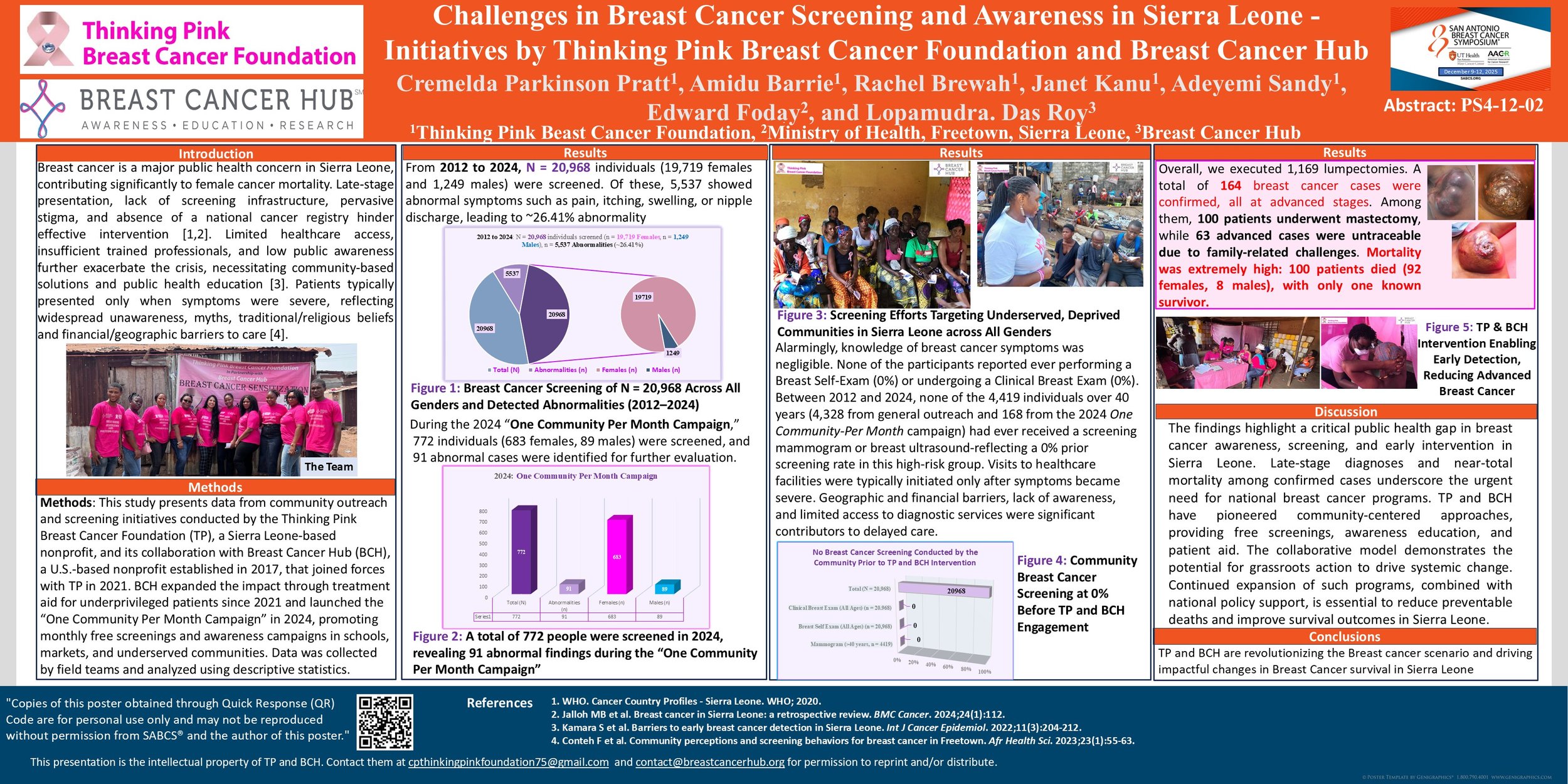



ASCO 2025 (American Society of Clinical Oncology): BCH Research on Cervical Cancer and Oral Cancer Published: https://www.breastcancerhub.org/usa-1/2025/asco
Western Michigan University Homer Stryker M.D. School of Medicine - Research Day, April 03, 2025. A) “A shocking presentation of Male Breast Cancer in a 17-year-old” and B) “Male Breast Cancer - A rare but deadly Cancer”. Full post: https://www.breastcancerhub.org/usa-1/2025/04/3/wmed-research-day
Invited interview by VJ Oncology, in honor of Breast Cancer Hub’s Poster Spotlight Award at the San Antonio Breast Cancer Symposium on 13th December 2024, under the category “Addressing Racial Disparities in Breast Cancer Outcome.
Link to the interview: https://www.vjoncology.com/speaker/lopamudra-das-roy/
POSTER SPOTLIGHT AWARD, San Antonio Breast Cancer Symposium under the category “Addressing Racial Disparities in Breast Cancer Outcome”, 13 December 2024: Door-to-door Breast Cancer Screening in 22,278 populaces from February 2020 to April 2024: Breast Cancer Hub’s Trendsetting Grassroots Sustainable Solutions, overcoming the Disparity, and Challenges in the Rural Remote Villages in Poverty, of Assam, India
San Antonio Breast Cancer Symposium (SABCS); Title: “Breast Cancer Hub (BCH) Case Study in Nadia District, West Bengal—Addressing Breast Cancer Challenges in Villages in India with Grassroots Sustainable Solution: December 12, 2024
American Society of Clinical Oncology, Chicago, USA, June 03, 2024: “Cervical cancer screening in 48000 females over two decades: Feasibility and success of community-based screening in Kerala, India. Malabar Cancer Care Society, Kannur. Journal of Clinical Oncology: https://ascopubs.org/doi/10.1200/JCO.2024.42.16_suppl.10550
Dr Lopamudra Das Roy
Finalist at Falling Walls Science Breakthroughs of the Year 2023 in the category Science & Innovation Management
March 1-2, 2024: International Conference on The Myriad Facets of Women: A Celebration of the Extraordinary, at Jain (Deemed to be University), Bengaluru India.. Oral Presentation, Title: Challenges of a Trans Woman: Case Report on Mental Health and Risks of Reproductive Cancers with Gender-Affirming Hormone Therapy
Conference: Western Michigan University Homer Stryker M.D. School of Medicine - Research Day, May 03, 2023, Kalamazoo, Michigan. Breast Cancer Hub (BCH) Research, Poster presentation, Title: “High Mortality in the Male Breast Cancer Community and the Need for a Change in Healthcare Policy”.
AKAM 2023 Conference, University of Delhi
Best Researcher Award
International Scientist Awards on Engineering, Science, and Medicine (INSO)
Annals of Oncology Research and Therapy
Breast Cancer Hub - meeting the challenges to screening, diagnosis, treatment, and support to cancer patients during the Covid-19 pandemic in North-East India.
Link to full paper: https://www.aort.info/article.asp?issn=2772-8382;year=2022;volume=2;issue=1;spage=49;epage=55;aulast=Devi
Discover Oncology
Understanding on CRISPR/Cas9 medicated cutting-edge approaches for cancer therapeutics.
Link to Full paper: https://link.springer.com/article/10.1007/s12672-022-00509-x
International Journal of Molecular Sciences
Repression of MUC1 Promotes Expansion and Suppressive Function of Myeloid-Derived Suppressor Cells in Pancreatic and Breast Cancer Murine Models
Full paper Link: https://www.mdpi.com/1422-0067/22/11/5587
St John’s National Academy of Health Sciences, Bengaluru, 3rd Annual Research Day April 8, 9, 2021
Poster 1: Evaluating the Disproportionate Rate of Metastasis and Mortality by Age in Patients with Breast Cancer in India and the United States Through a Comparative Study
Poster 2: An epidemiological research study to depict the status of Breast Cancer Awareness in the local population of Nagaon, Karbi Anglong District & surrounding areas in Assam, India – generate awareness to help with early detection.
Poster 3: Investigating the cancer awareness status, underlying determinants leading to late detection, navigating the suspicious cases, and addressing the challenges with grassroots solutions during the Covid-19 pandemic in the villages adopted by Breast Cancer Hub (BCH) in Cachar, Assam, India
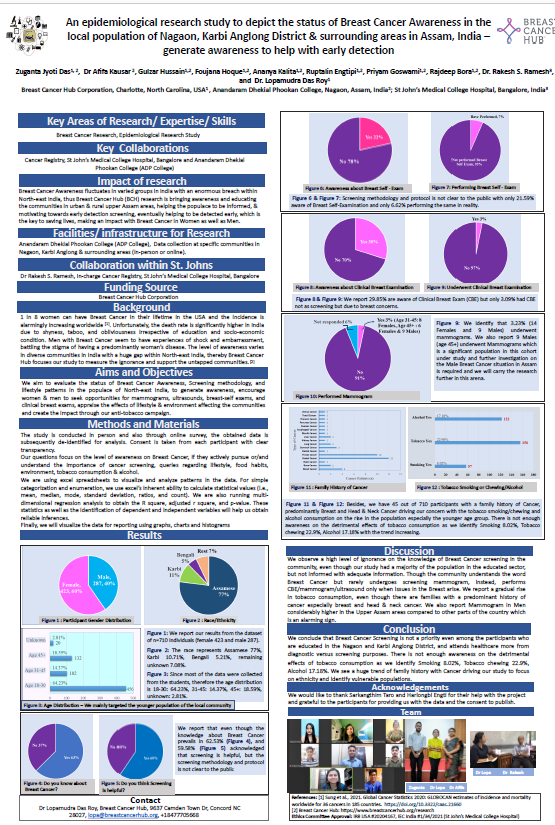
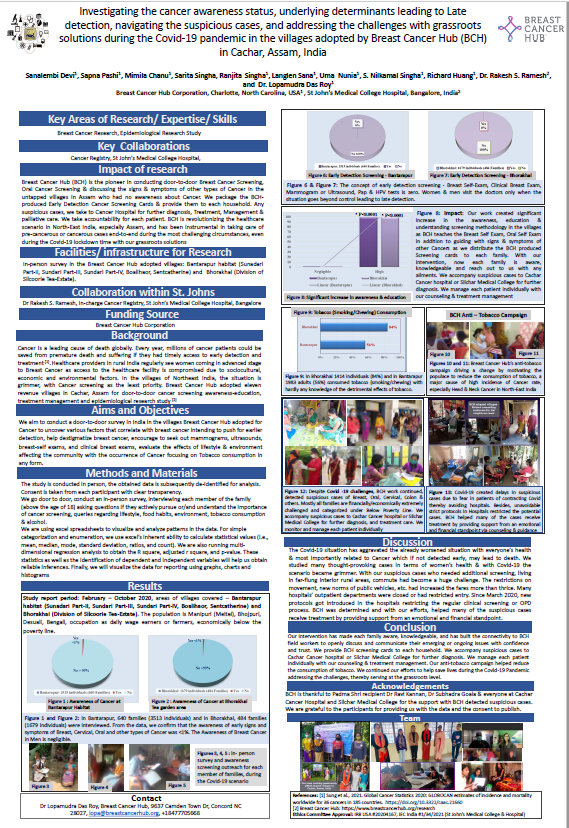
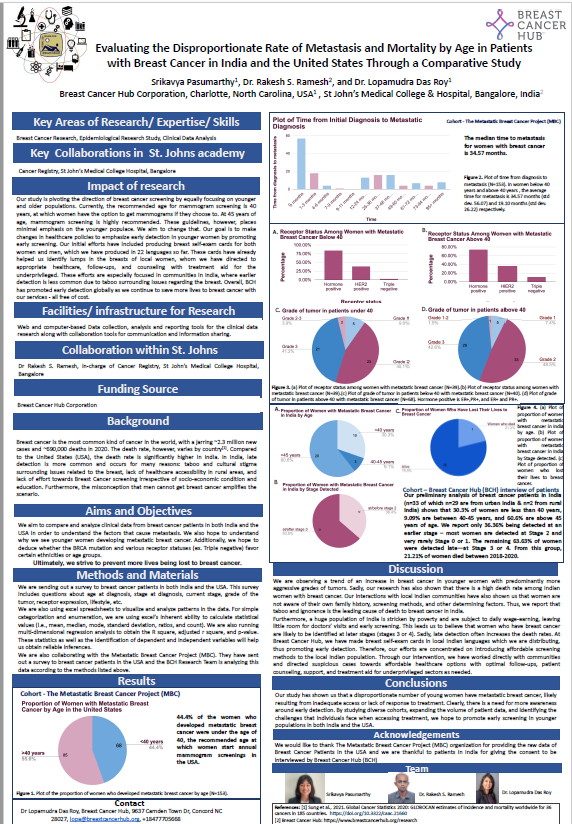
Impact of Covid-19 on Breast Cancer Screening in North-East India
Great moment for Breast Cancer Hub and our team. Our original research work "Impact of Covid-19 on Breast Cancer Screening in North-East India" got accepted at Indian Association of Women's Studies E-Conference. "Gender during Covid -19: Perspectives from Northeast India". We brought into limelight the true incidents (case studies-anonymous), challenges faced & how we are working at the grassroot level to overcome the barriers & help the patients.
ABSTRACT
Introduction: 1 in 8 women will be diagnosed with breast cancer in their lifetime in the USA. The incidence of Breast Cancer in India is also alarmingly increasing and the death rate is significantly higher compared to other parts of the world due to lack of awareness and early detection. Younger women are also getting Breast Cancer & detected late stage. The fundamental reason for late detection is taboo & ignorance. Women & family members hesitate to mention the word Cancer in “Breast”. It’s the shyness & embarrassment society imposes. In India, irrespective of socio-economic condition or education, women are still detected late due to culture induced inertia to go for screening processes. The situation is worse in the rural areas where poverty plays an important role. Therefore, Breast Cancer screening & early detection has become one of the missions of Breast Cancer Hub so that we can increase the survival rate in the urban & rural India.
Covid-19 impact on women health: Breast Cancer Hub (BCH) extensively works on breaking the Breast Taboo, early detection awareness & screening across India and in this process, BCH adopted two villages in Cachar, Assam – Bantarapur & Bhorakhai. We go door to door for Cancer screening, Care & Management. We studied many thought-provoking cases in terms of women’s health & with Covid-19 the scenario has become grimmer. With our suspicious cases who need additional Breast screening, living in far flung interior rural areas, commute has become a huge challenge. The restrictions on movement, new norms of public vehicles etc. has increased the fares of public vehicle more than thrice. Therefore, it is an expensive deal for the people to commute to the hospitals located in urban town areas. Moreover, women do not have their own income source, becoming financially dependent on their male counterpart for whom Breast screening becomes secondary & unnecessary. In addition, we have come across many families, where male earning members are working in another state & couldn’t return home during pandemic. In such cases, women face resistance from their conservative, possessive family members working elsewhere, not allowing their wife, sister or daughter to go without them for BREAST screening. Early detection to Breast Cancer is the utmost need, we cannot cure cancer if it goes into the metastatic stage leading to death. Covid-19 has made the situation more difficult. People are not only hesitant but also restricted to go for screening. Many hospitals’ outpatient departments are closed or having restricted entry. Since March 2020, as number of Covid-19 cases have increased, new protocols got introduced in the hospitals restricting the regular clinical screening or OPD process. Thus, the pandemic situation has negatively affected diagnostic Breast screening of suspicious cases.
Conclusion
•We have innumerable patients who reached out to Breast Cancer Hub from Northeast India after they detected themselves with lump. They were hesitant to visit the cancer centres for further screening due to the fear of getting Covid test prior to visiting the hospital but we convinced them.
•We have instances where due to lockdown, Breast Cancer patients residing in remote areas are delaying their surgery, chemotherapy, radiation, which might transition them to advanced stages of Breast Cancer. Cancer patients with Covid, treatment compromised.
• We also have reports of Breast Cancer survivors delaying their 6 month follow up scheduled check-ups due to hospital strict protocols with Covid or the lockdown transportation concerns or families losing jobs leading to financial burden. In these circumstances, follow up check-ups are taking back seats but we are intervening & making things work.
• Cancer patients are highly immunocompromised and Covid causes serious outcomes with pre-existing conditions, so we are counselling the patients with scientific advices & teaching them to implement Covid preventable measures.
Covid-19 has further complexed the situation of women with Breast Cancer. Any gaps lead to a deadly consequence but we are determined with our efforts & helping the suspicious cases & the cancer patients to the best of our capabilities.
Patient Perspective - Annals of Oncology and Therapy
Cancer Cannot Stop me
Full paper: Click here
Patient Perspective - Annals of Oncology Research and Therapy
My journey as a triple-negative patient with breast cancer
Full Paper: Click here
one-stop life saving early detection cards - download and share
BCH review research papers in layman’s terms
breast cancer
Other Cancers
BCH YOUNG SCIENTIST CANCER MEET 2019
BCH organized Young Scientist Cancer Meet 2019, USA: 42 Teams {AGE 6 to 21 years from all across (NC-Cabarrus, Mecklenburg, Union County, Greensboro) & Atlanta} presenting 42 different topics related to Cancer- Topic spectrum ranges from- Different types of Cancer, Early detection, Causes of Cancer, How to prevent Cancer, Risk factors, Genetics, Treatment, Carcinogens, Statistics, Comparative study between Developed & Developing countries & many more eye-opening review research analysis conducted by our teams – Extremely enlightening information for our audience.
Projects mentored by Dr. Lopamudra Das Roy - The bigger purpose of the Science Meet - Art of Scientific thinking….. Cancer Awareness & Research in the Youngsters. Each student becomes ambassador to talk about cancer awareness, early detection, preventative measures and most importantly - spread the knowledge that will help the community! We want to bring awareness and scientific thought leadership in the students that will encourage research ideas, data analysis, foundation for networking, collaborations and empowering them with the knowledge about cancer prevention - A step towards our fight against Cancer & Saving Lives!
Event covered by Spectrum News




























